Hope after the floods

pages 14-15
Remembering Her Late Majesty Queen Elizabeth II pages 4-5
COVID & the Church: National Church Life Survey results pages 18-19
Your summer reading guide page 27
1
to you by Bible Society Australia November 2022
Brought
There has perhaps never been a time when Christians need encouragement more than now. Believers in the Western world are constantly bombarded with messages that the church is dying, the integrity of our leaders is eroding, and our faith is irrelevant, intolerant and abhorrent in the current culture.
At this pivotal moment in the life of the Australian church, it feels like we are sitting on a precipice. How will we respond? Will we descend into despair and fear and live up to the reputation of being an insular and judgemental community?
Or will we lift our eyes heavenward – keeping our eyes fixed on Jesus, “the author and perfecter of our faith” – and work together to continue his mission in this world; not allowing the criticisms and distractions to sap our joy and faith?
Eternity is starting to hear the winds of change. Christian leaders are catching hold of this moment to speak words of truth and life into the void left by COVID-19. Yes, some people have left our congregations (as the National Church Life Survey report in this issue shows, p. 18). But this report and many other stories in this edition also show that a stable core of believers is holding strong and others have increased their church involvement.
God’s Spirit is moving in a new way.
The majority of churchgoers are looking to the future with hope and confidence (p. 19). There is
a growing movement among Christian athletes, spearheaded by Nicola Olyslagers (nee McDermott, p. 7). Churches are working to be more accessible and empowering for people living with disability, as Louise Gosbell writes (p. 9). Evangelism is still booming, as shown by the incredible success of the Alpha course (p. 13) and public witnesses, such as Her Late Majesty Queen Elizabeth II (p. 4), are still making an impact on people’s hearts and lives.
And so, friends, “let us not become weary in doing good, for at the proper time we will reap a harvest if we do not give up.” (Galatians 6:9)
To this end, you will notice a shift in the direction of Eternity’s content, both online and in our print magazines. We are moving away from news and focusing on content that aims to equip, encourage and inspire believers. As you hold out the word of life, we want to run beside you – cheering you on and helping provide fuel for your faith.
I am honoured to do this as I step into a newly created role, after previously serving as Senior Writer for over four years. The beloved Anne Lim will continue to bless you with her expertly written articles. Naomi Reed will also continue to share Faith Stories each week – may each testimony remind you that the powerful hand of the Lord is indeed at work. And I’m excited to introduce two new sections by Christian leaders who will enrich your faith journey in coming months.
In this, my first issue, I would like to acknowledge the pioneering work of Founder and former Editor John Sandeman who devoted 13 years to growing Eternity from a national newspaper, started on his dining room table, to a global digital
news service. I also acknowledge the talent and dedication of our former writer Kylie Beach, who has also moved on from Eternity It’s significant that our cover story for this issue is on the Lismore floods. Not only is it an important reminder to keep this, and other flood-ravaged communities, in our thoughts and prayers, but this town, in some ways, represents where many now find themselves.
We have endured the tides of a global pandemic – and many other challenges besides, both global, national, at a church and perhaps also a personal level. Yet, by the grace of God, here we stand. The rebuilding is beginning. And our God is the master of taking what looks irretrievable and turning it into victory.
Do we have the faith, along with Aussie evangelist Christine Caine to believe that, together, the church can truly be a growing “radical Jesus community” that draws non-believers to us?
May Eternity play a part in helping you grasp and hold on to this vision.
Look what’s new at Eternity
Eternity is thrilled to announce the launch of two new series.
Dr Katherine Thompson is Australia’s Christian Mindfulness expert. Kara Martin is a leading voice, both here and overseas, on the integration of Christian faith and work.
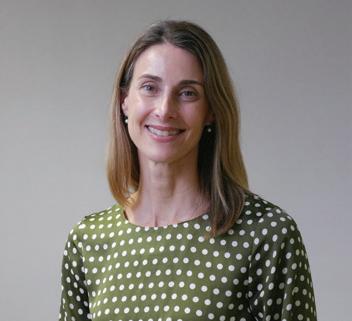

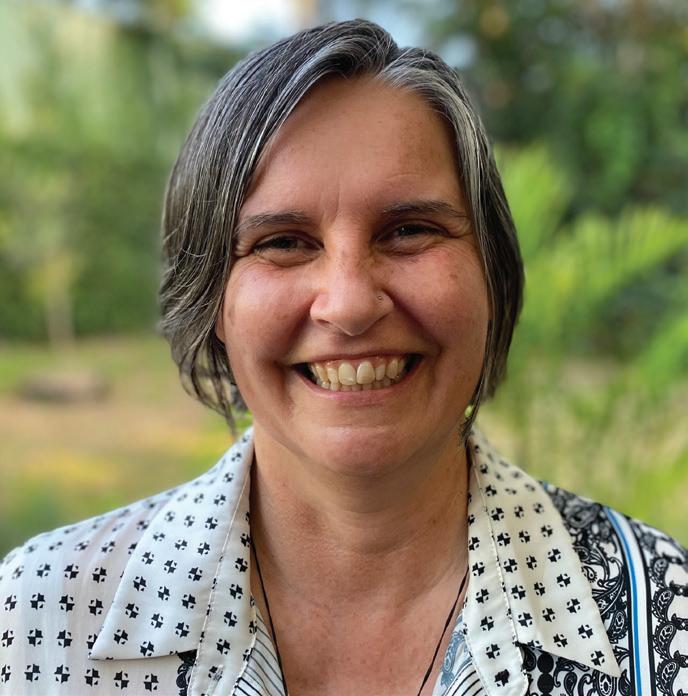
Here they share about themselves and what you can expect from each of their new series on the Eternity website.
Christ Centred Mindfulness
with Katherine Thompson
Eternity
Please direct enquiries to: eternity@biblesociety.org.au
Web: eternitynews.com.au Facebook: eternitynews
Eternity is published by Bible Society Australia Print Post Number PP100019810
It is more than 25 years since I started my journey in the field of mental health, and for most of this time I have enjoyed the challenge and hopefulness of working with 12 to 25-yearolds. I would describe myself as a curious, creative thinker who asks difficult questions. This worked in my favour as a research fellow where I could actively challenge the whys in life. I continued my questioning through a Bachelor of Theology, then came full circle to completing my clinical training as a Mental Health Social Worker.
Since then, my challenge has been integrating my training and life experience, searching to understand people and faith. It is possibly not surprising that I now find myself in a role that specifically integrates psychology and theology at Melbourne School of Theology and Eastern College Australia.
I remember one day speaking to my work colleague about contextualising faith in our clinical practice and sharing my puzzlement about what popular mindfulness is, where did it come from and why are we using it in mental health treatment?
Twelve years ago, it was difficult to find the answers to these questions. I was shocked to discover that most popular mindfulness was based in Buddhist meditation, even when it was part of a psychological therapy, and I wondered why the church was silent or perhaps ignorant about this.
The frustration this triggered led me to search through the Bible and our Christian tradition for an alternative. In the process I rediscovered contemplative practices that, when paired with psychological frameworks, could help us connect to our inner world and to God. The result was my first book, Christ Centred Mindfulness: Connection to Self and God.
Since the book’s publication, secondary teachers who were directly challenged by the mindfulness movement have asked for resources to use in their Christian schools. This led to the publication of Christ Centred Mindfulness: Activities for Young People and presentations to various school

networks within Australia to explain the difference between popular mindfulness and a Christ-centred approach.
Then came the COVID-19 pandemic. People were in clear need for calming spiritual practices they could use in the face of a stressful and challenging situation. So I started writing a series of mini books, filled with practical mindful exercises designed to help people slow down, connect to what is happening inside them and listen to God’s guidance every day.
The exercises in Breathe and Still are designed to help you take time out of your busy life – to stop, breathe and listen to God. In the quietness that follows, your spirit is able to hear what God’s Spirit is saying to you. Your breath is open to perceiving God’s breath. You learn to stop and notice your emotions, and still yourself to find peace.
You can get a taste of these exercises in my new devotional series on the Eternity website.
Faith at Work
Scan the QR code to find out more.
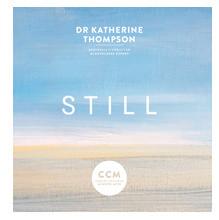
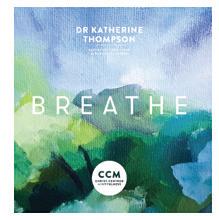
Katherine Thompson’s books Breathe and Still as well as Christ Centred Mindfulness, are available from Kooroong.
with Kara Martin
“There I was, the opportunity of a lifetime! I was offered my dream job: television reporter for a brand-new regional station on the south coast of Sydney. All the university study, the freelance work, the hospitality jobs to help pay the bills, the hundreds of applications … Finally, it all paid off.”
That is how my book, Workship, begins. As a Christian, I was excited to enter the world of media, keen to see how Jesus could use me in that place.
However, the reality was different. As a young Christian, this was a difficult environment to work in. I felt very underprepared. What was a faith response to this alien world of work?
I tried to get my pastor to help me, but he had difficulty understanding or engaging with my world of work. The teaching on Sunday was about spiritual matters rather than everyday issues.
When I came across ethical issues, there seemed to be no wisdom in the Bible for my vocational concerns. How did I stand firm when a strongwilled boss wanted to exaggerate a story, or reveal a source, or invade someone’s personal grief?
I ended up being tempted to live two separate lives: the Christian Kara, running a youth group and attending church on Sunday, and the reporter Kara, who was slightly more risqué in her language, attitudes and behaviour from Monday to Friday.
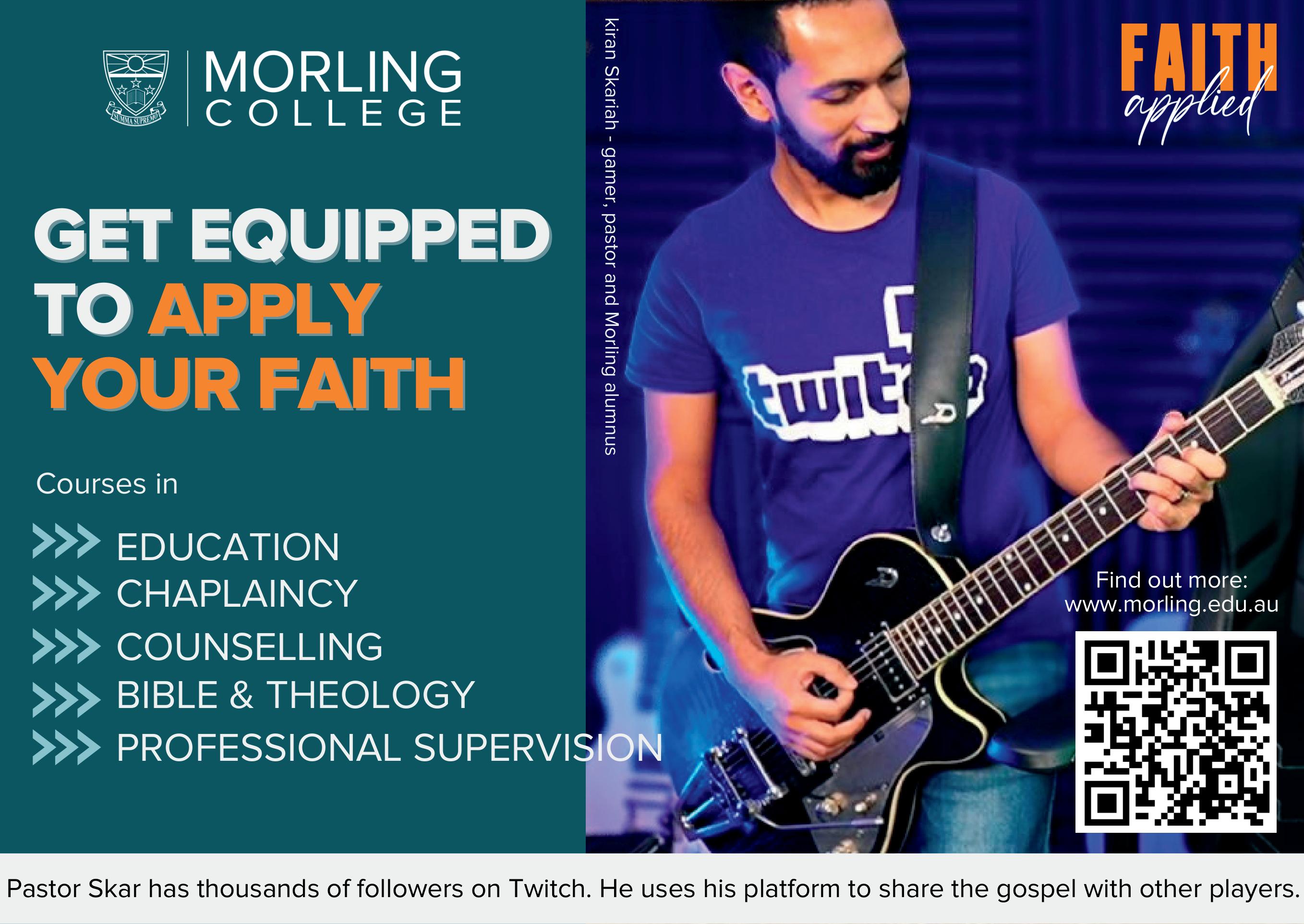
In my heart I knew this was unsustainable. It was impacting on my relationship with God and with others. I was living a life that was not integrating faith and work. I was dis-integrating!
However, this is not how the Bible sees faith and work: as two different areas of our lives. Right from the beginning of the Bible, work is positioned as an extension of who we are in God. After all, we are made in the image of a God who works and whose first command is for us to work: stewarding his creation.
Since that moment, walking into that newsroom, I have sought to promote the re-integration of faith and work: through professional Christian groups, theological colleges, working with churches, writing articles, lecturing and speaking at events.
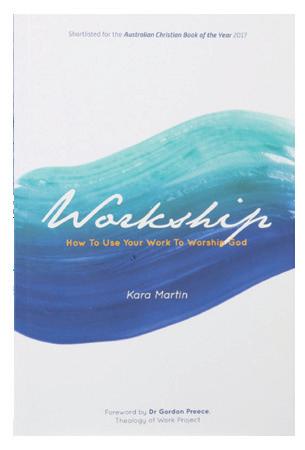
In my new Faith at Work series on Eternity I will discuss current topics, introduce you to Christians making a difference in the workplace, and talk about ways we can equip ourselves and each other to live and work to God’s glory and the service of others.
Scan the QR code to find out more.
Kara Martin is an Adjunct Professor at GordonConwell Theological Seminary, author of the Workship books (available at Koorong) and co-host of Worship on the Way to Work podcast.
3
Rebecca Abbott
“Let us consider how we may spur one another on toward love and good deeds.” (Hebrews 10:24)
Eternity enters a new era
A Life of Grace: A Tribute to Queen Elizabeth II
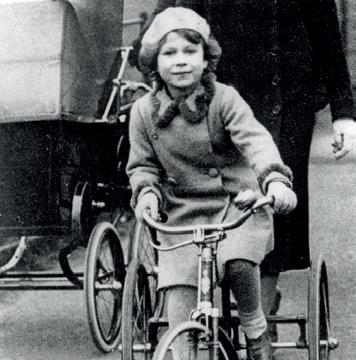
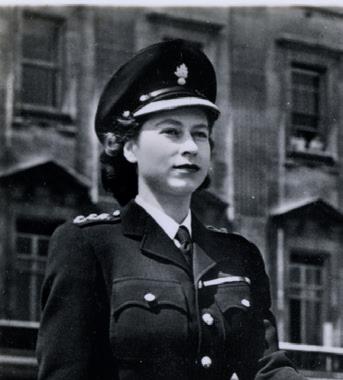

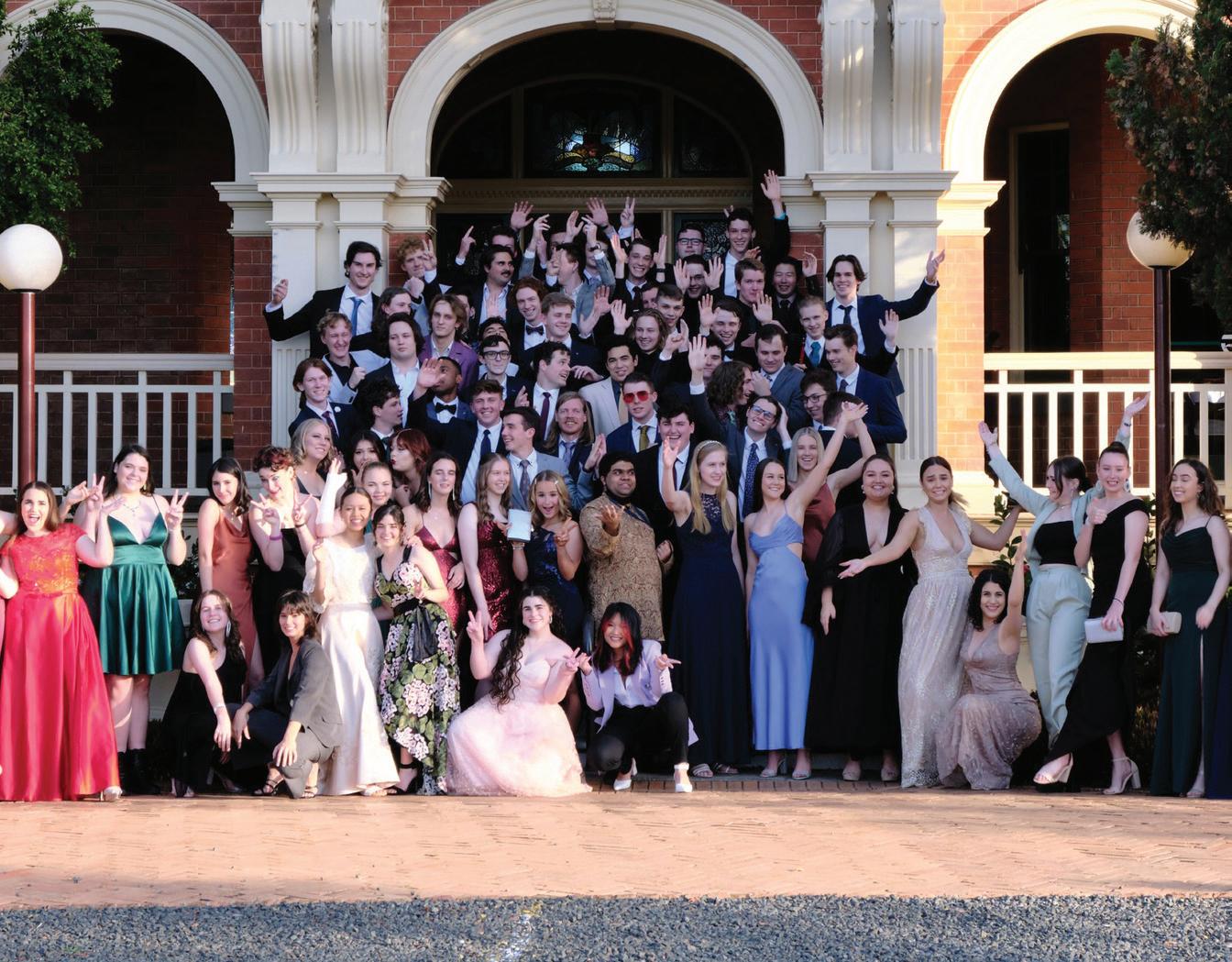
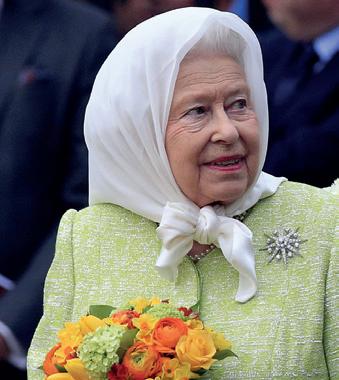
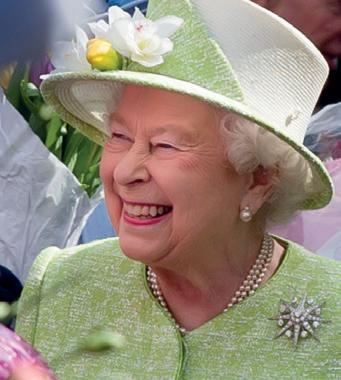
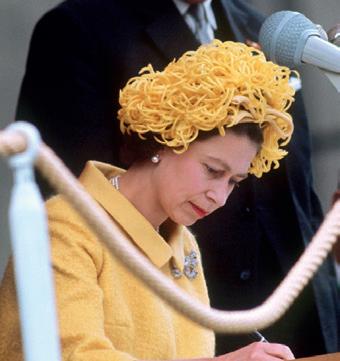
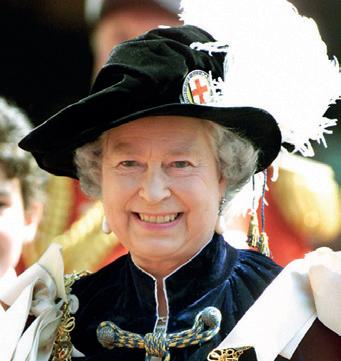


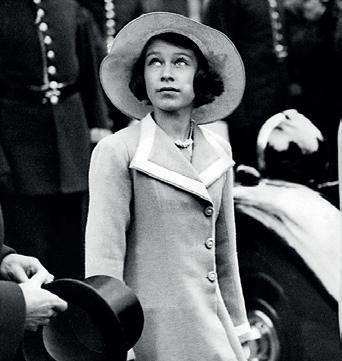




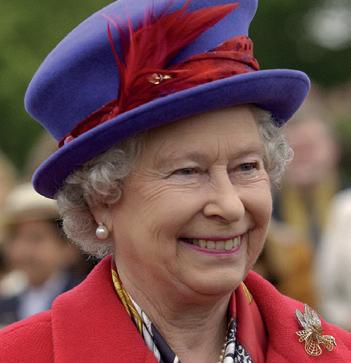




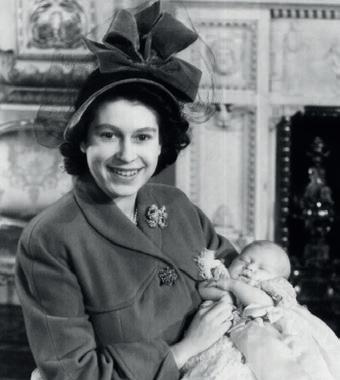
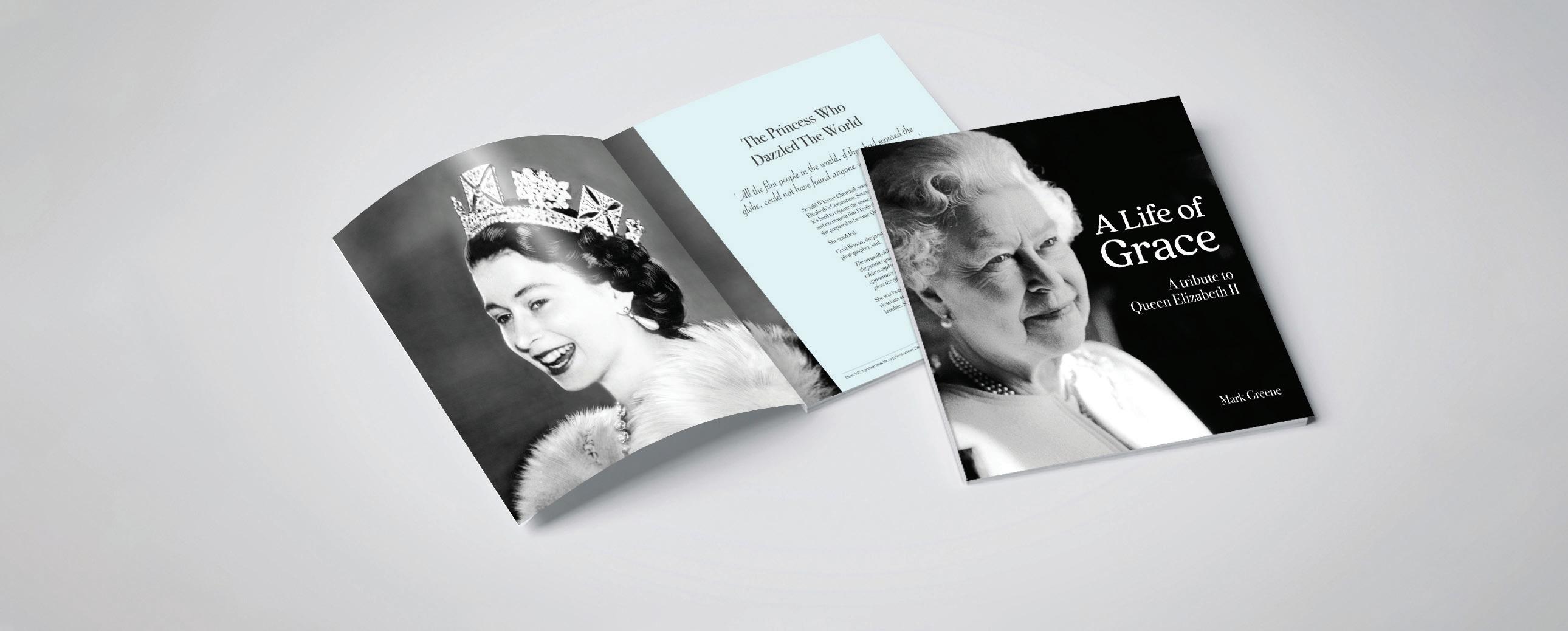



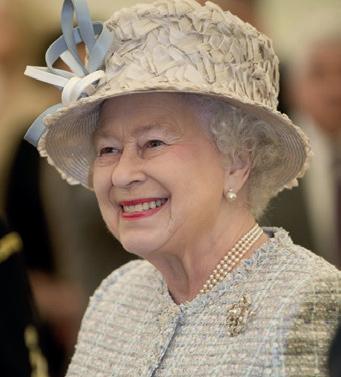


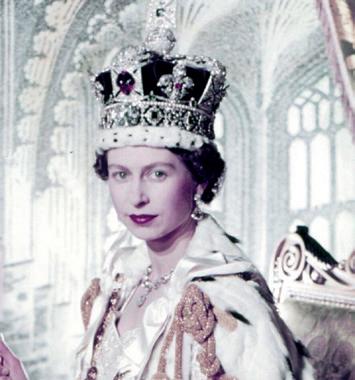
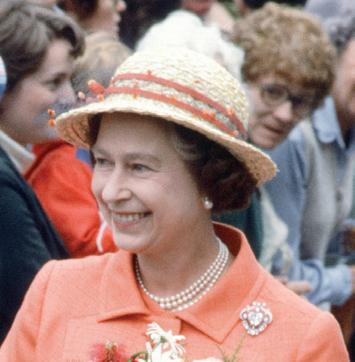




London-based writer Agnes Wilson speaks to the author of a new book about the life and faith of an extraordinary monarch.
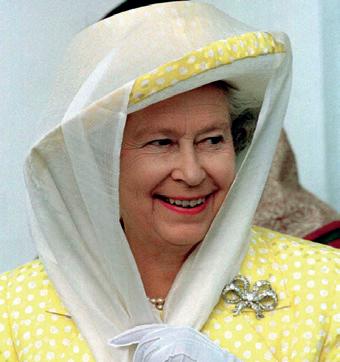
Thursday, 22 September 2022. It was a public holiday unlike any other in Australia. A national day of mourning to mark the death of Queen Elizabeth II.


While many paid their respects that day, hundreds of others rallied in the streets of Sydney, Melbourne and Canberra to denounce the monarchy and the devastating impact of colonialism on Aboriginal Australians.
The news came through to London too.
I watched with concern as I saw people burn the Australian flag. They shouted their anger and grief born of centuries of systemic oppression.
“I think the monarchy needs to be aware that there’s unfinished business happening here in Australia,” said Gwenda Stanley, a 49-year-old activist of the Indigenous Gomeroi people who spoke to Al Jazeera news.
A week after the day of mourning, I take the tube to Oxford Circus. In the heart of the bustling, people-packed shopping district is St Peter’s Church. It’s the home of the London Institute for Contemporary Christianity (LICC).
I am there to talk to Mark Greene. He is the co-author of The Servant Queen the author of The Queen’s Way, and the new release A Life of Grace: A Tribute to Queen Elizabeth II He is also Mission Champion at LICC.
For a man who has written three books on the late monarch, Mark had not been a lifelong royal watcher. He did not have a single book on the late Queen. The only royal memorabilia he had was a beautiful silver jubilee glass paperweight with ERII on it.
But it all changed in 2015.
“I wrote a book called Fruitfulness on the Frontline which is about everyday discipleship and had six criteria: modelling godly character; making good work; ministering grace and love; moulding culture; being a mouthpiece for truth and justice; and a messenger for the gospel.
“I found myself saying to God, wouldn’t it be great if there was someone in the public eye who lived out these principles? His answer came to me with weight – the Queen.
“The more I thought about it, the more I realised her character reflected the fruit of the spirit.
Patience, self-control, joy, kindness, gentleness. Many have testified to her deeds. Look at all the stories about her care for others. We know she did not have to do it, yet there she was ministering grace and love.”
While acknowledging the pain and dispossession caused by Britain’s colonial past, Mark encourages people who accuse Queen Elizabeth II of perpetuating colonialism to do more research.
“Look at what she has done with the Commonwealth. These are nations we exploited. When she took over, there were eight members of the Commonwealth. Now there are 54.
“Almost all those countries are now independent nations, and instead of saying we want nothing to do with the Crown and nothing to do with Britain, the Queen managed to turn them into friends.”
As she put it in 1977, she had seen “the transformation of the Crown from an emblem of dominion into a symbol of free and voluntary association.”
In her 1952 Christmas address, the Queen said: “The Commonwealth bears no resemblance to the empires of the past. It is an entirely new conception built on the highest qualities of the spirit of man: friendship, loyalty, and the desire for freedom and peace. To that new conception of an equal partnership of nations and races I shall give myself heart and soul every day of my life.”
It was reconciliation in action, according to Mark. And at its heart was her devotion to Jesus, the King of Kings.
In The Queen’s Way Mark points out that it stems from the Queen’s understanding of God’s concern for all human beings. An understanding of “the child who was born at Christmas with a love that came to embrace the whole world.” (1995)
Jesus was “the bedrock” of her faith. From him stemmed a desire to care for people of all races, all faiths and none. And it showed. Under the scrutiny of the world’s media, during times of searing criticism and glowing praise, Queen Elizabeth II’s deeds were constant.
The Queen visited the country of my ethnic heritage in 1999. It was the first time a British monarch had visited Korea since the two countries established diplomatic relations in 1883.
Her Majesty went to Andong city – to Hahoe village where they still kept centuries-old Confucian traditions. She was invited into a traditional Korean home.
It is customary to take one’s shoes off inside a Korean home. It can be a mark of disrespect not to do so. In front of the world’s media glare, the Queen
took her shoes off to honour the people who lived there and walked inside.
This year there was a memorial for the Queen in Andong where people could visit and lay their floral tributes. In the heart of Hahoe village, there was a giant banner which read, “We will never forget the day Queen Elizabeth II visited Andong in 1999.”
Her small moment of care to respect and honour another culture before her own comforts has now become part of history.
Her public deeds were consistently different to some of the accusations hurled at her on September 22, 2022 and its accompanying media images of anger and pain.
In Mark’s latest book, A Life of Grace published by Bible Society Australia, LICC and Hope Together, there is a chapter on “The woman who forgave the bombers.”
The opening page has a quote from the Queen:
“For me, the life of Jesus Christ ... is an inspiration and an anchor in my life. A role model of reconciliation and forgiveness ...”
This theme of forgiveness was one that the Queen repeated in her Christmas addresses. In 1976, as sectarian violence killed 297 people in Northern Ireland, the Queen said:
“The gift I would value next year is that reconciliation should be found wherever it is needed. A reconciliation which would bring peace and security to families and neighbours at present suffering and torn apart.”
It was a gift she needed three years later when the IRA assassinated her family member.
In 1984, she mentioned:
“Above all, we must retain the child’s readiness to forgive, with which we are all born and which it is all too easy to lose as we grow older.
“Without it, divisions between families, communities and nations remain unbridgeable. We owe it to our children and grandchildren to live up to the standards of behaviour and tolerance which we are so eager to teach them.”
In 2011, during a successful state visit to the Republic of Ireland, she shook the hand of a representative of the IRA known for his previous violent action.
The late Queen was publicly practising what she preached. And for 70 years, if not more, she served her country and pointed to Christ, who is the author and perfecter of her faith.
The best story in history is about Jesus
What we believe matters for eternity. Christmas Celebrating the birth of Jesus is a reflection on scripture explaining why Jesus, King of heaven, was born into the world as one of us, fully God and fully human to restore humankind’s broken relationship with God. Our Spiritual Foundations book is perfect for someone who wants to learn what the Bible says in the letter to the Hebrews about Repentance from dead works, Faith toward God, The doctrine of baptisms, The laying on of hands, The resurrection of the dead and Eternal judgement.
4
Fountain Springs Ministries Love God, Your Neighbour and The Truth fountainsprings.com.au
e-Books available on Amazon Kindle
community Best Location Supporting academic success Register your interest for 2023 Visit raymont.com.au
. Amazing
1932 1938 1939 1942 1956 1961 1965 1967 1986 1988 1989 1992 2005 2007 2012 2016 1947 1948 1952 1953 1971 1975 1977 1981 1993 1997 2000 2002 2017 2019 2020 2022
Pages from A Life of Grace: A Tribute to Queen Elizabeth II
A Life of Grace: A Tribute to Queen Elizabeth II by Mark Greene is available from Koorong.
Agnes Wilson is a Christian wife and mother working in communications. She and her family lived in Sydney before moving to London.
A new path
Marta Rutkowska, Avondale University
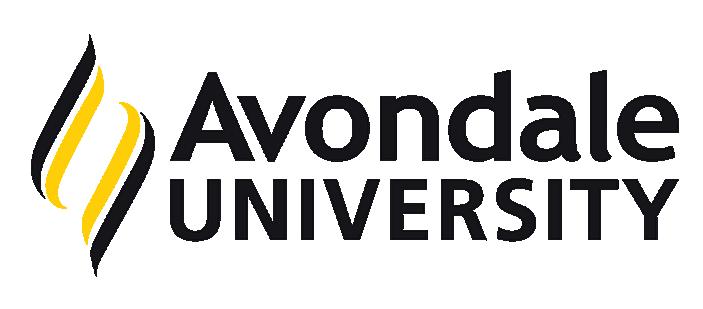
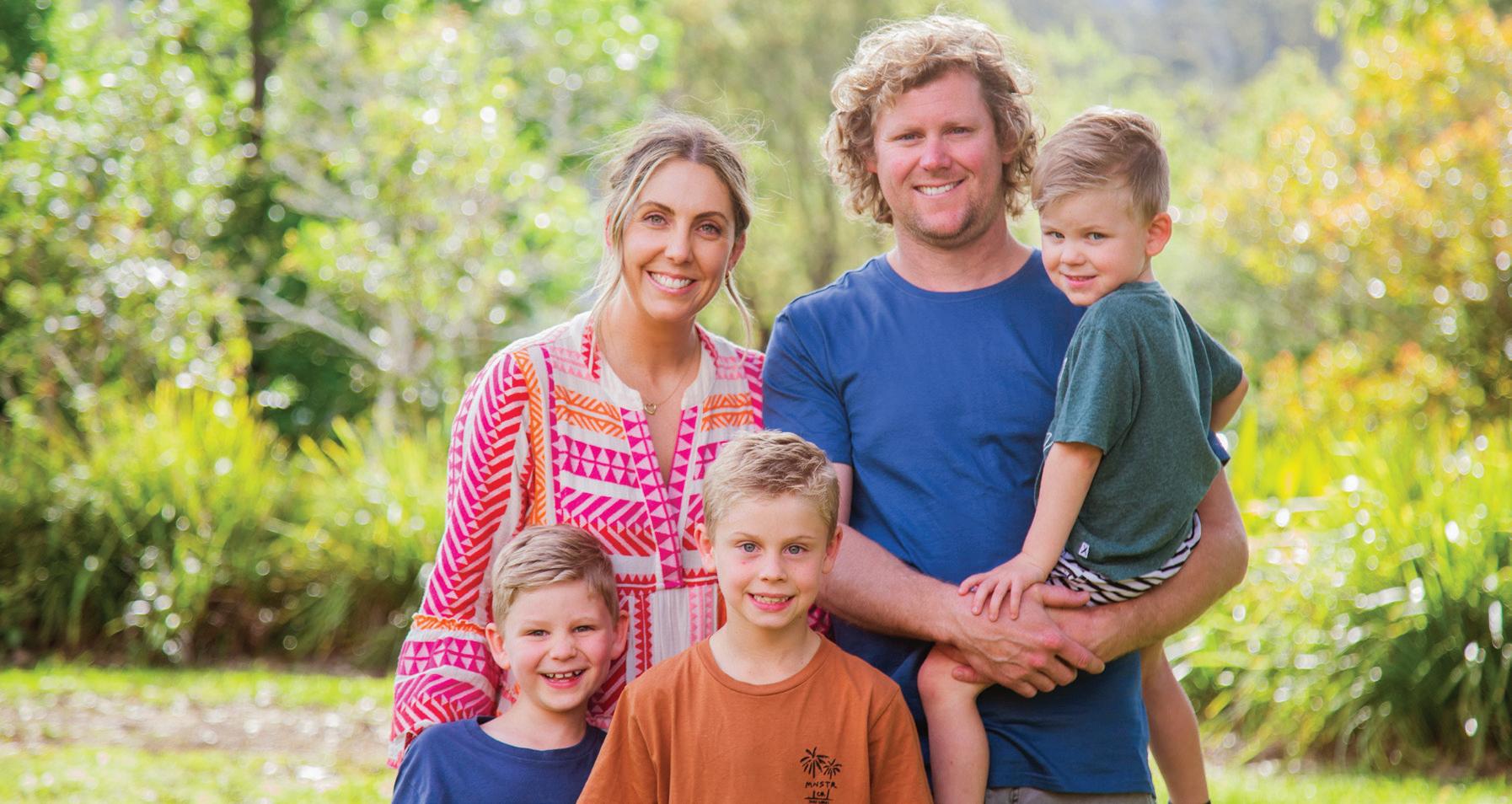
Her boys are young – the oldest is just eight – so Alex questioned whether the time was right to add study to her busy family and work life. But what her supportive mum told her, changed her perspective. “Your boys will see you working hard at something that you really want, and that’s the best example to set for them,” her mum said.
A creative producer and graphic designer, Alex Blackham is now becoming a teacher by studying Avondale University’s Master of Teaching degree. “I love my job and the team I work with, but I got to a point where I felt I needed to change what my future would look like.”
A proud wife and mother of three beautiful boys, Alex wanted to study at a university that aligned with her family’s values. “The one thing I say over and over again to my children is, ‘Always be kind and honest.’” Serving others is important, too. “I want to make a positive impact on someone else’s life.”
Balancing work and home life with a study load has been challenging. She compares the university experience now with how it was going to university the first time. “It’s completely different. I’m taking time away from my family and friends to complete this course, so I’m giving it 100 per cent. I’m staying
up late each night, after the kids’ bedtime, to get the study done.” Doing something that will make her children and family proud – while impacting the lives of other children as a teacher - has been Alex’s motivation for the past two years. “I am so supported by my husband, mum, family, friends and even neighbours. It takes a village!”
Alex appreciates the support she receives from Avondale lecturers. She recalls one recent assessment that she submitted late one night, with a few hours to spare, but received an almost instant email from the lecturer. “I panicked and thought, ‘Something must be wrong.’ It wasn’t. My lecturer was simply letting me know my assessment looked good. I’d covered all the tasks and submitted correctly. It was a huge relief to get that reassurance.”
Alex’s advice for people considering a postgraduate degree with family and work is this: “Ease into the study; start doing part-time. Accept the support and help when it’s offered.”

After completing her studies, Alex hopes to work part-time or casually as a teacher, close to home. “By the time I finish, all my children will be in primary school, which is a scary thought. But it is also a nice thought: we will be on the same schedule.”
What’s also surprised Alex? The confirmation from family and friends that a career change into teaching was right for her. “After being accepted into the Master of Teaching, I began telling family and friends and I was shocked when everyone said to me ‘I always knew you would be the best teacher’. It made me feel like I had made the right decision.”
Penny Mulvey chats with Aussie Olympian Nicola Olyslagers (nee McDermott) about God’s calling to ‘go for gold.’
This is part of the memorable speech given by Aussie highjumper Nicola McDermott when interviewed after competing at the 2021 Tokyo Olympics. Nicola was awarded silver in a nail-biting final, to become only the second Australian woman to win an Olympic medal in high jump.
25-year-old Nicola, married earlier this year to Rhys Olyslagers, is in an exclusive club – one she has spent many years working towards joining. And yet being an Olympic medallist does not define her. Nicola finds her worth in the Creator of the universe, and she believes she has been given the platform that comes with a medal to tell more people about Jesus Christ.
“I don’t have a filter anymore,” Nicola explains. “I would say, well when God told me about this and then the Holy Spirit revealed this to me, then I realised that this song was really important … And I found that nine times out of ten, it just leads to more questions.
“It’s been a sort of breakthrough,” she continues, “getting more and more people involved and reaching more people by being unfiltered and just speaking the gospel as it is.”
Most of us will never know what it takes to become an Olympian, let alone win a medal. But talking with Nicola, one gets a very tiny sense of the willpower required to stick at training, more training and even more training.
It starts early, long before a person actually qualifies for the Olympics. Nicola had been training in high jump for 16 years, since she was eight years old!
Many parts of our conversation left me in awe of this young woman – so much wisdom and understanding of God! But perhaps what was particularly interesting for a total non-athlete was that for those who dream of competing in the Olympics, the dream stops there – they don’t dare dream of winning a medal.
I had the privilege of having this conversation
with Nicola for the Christian Media and Arts Australia’s (CMAA) CONNECT22 conference.

Nicola is in Switzerland for the European athletics calendar. She was recovering from a calf injury, sustained the day before she was due to compete in the high jump final at the Birmingham Commonwealth Games.

There has been much discussion among athletics commentators about what they believed were Nicola’s sports tactics in the lead up to her run to the bar: the smile, the clapping, the arms stretching into the air. “It appeared that you were handing everything over to God,” I say.
That is indeed what this amazing athlete was doing, and God was speaking to her.
She explains that during the 2020 COVID quarantine, she had worked on a discipleship course to encourage athletes.
“It was like, I can’t wait to make the Olympic Games so I can disciple athletes … It doesn’t matter how I compete. But I just felt God say, ‘I want you to go for gold next year.’
“I was thinking, ‘Getting a medal would be amazing, but I can’t even think about getting gold.’
And then I really felt God saying, ‘You need to train as if you’re going to get the gold medal and believe in your head that you can do it.’ For me, that meant changing everything I did. To make the Olympics might require this much effort – it’s really, really hard. But to get an Olympic medal and beat everyone else that you’re versing in the Olympics, I would say is almost twice the effort.”

She goes on, “And I said, ‘Lord, I’d have to change my habits, my sleeping, my eating, my training, my social life if I really believe that I can get the gold medal. It’s going to require this much work.’ And I just felt God give me the grace and say, ‘It’s going to come through prayer.’”
For Nicola, prayer centred her day, as often the training was more like suffering. Previously the athlete had been jumping 1.95cm, but now to win gold, she had to jump over two metres. This tiny distance meant she had to change everything.
“I could no longer sit down and relax and go ‘Yeah, I’ve made the Olympics.’ The hard work began when I qualified.
“[I had] to try and continually go for gold when you had a really bad competition or when your competitors were jumping so well. So my whole centre point of every day was on prayer and intimacy with God. Because I started my season back in September 2020, I had that intentionality for one year.
“Building up towards the Olympic Games, I was
preparing spiritually just as much as physically. I knew that when I went out there, doubt was going to be so present, as well as the temptation to hide my faith in order to gain sponsors or to hide my joy just in case I missed the bar.”
So connected was Nicola to God that she knew absolutely that he was in control. She pushed herself harder and harder, knowing the potential of injury, but also knowing that this was what God wanted.
She explains that it has been years of not only pursuing God but also pursuing a community and a vision that creates the kingdom on earth.
“In the Olympic Games people saw my performance, but most people didn’t know about all the prayer meetings and all the things I was doing in the Olympic Village outside of that.
“The fruit of that was the joy and confidence of seeing what God was doing inside the village, knowing the impact I was having on those athletes.”
A huge smile envelopes Nicola’s face as she recounts her mindset in the lead up to the final on that memorable day, 8 August 2021.
“I was fearless because I knew when I was pursuing the highest thing that I could do in that Olympic Games, that even if I didn’t make it, I knew that my identity in Christ meant that I was more than enough.”
“Being able to be bold and confident and firm in who I was, was one of the greatest opportunities to show what was in my heart, which was just the best.”
When I ask if she felt she had let God down because she didn’t win the gold medal, Nicola calmly responds, no – God asked her to aim for gold, but it didn’t mean she had to get the gold.
Judging by the preparation required to win a medal, Nicola may not have won any medals if she hadn’t responded to God’s voice to go for gold.
There is something quite remarkable about this young woman. It is her total confidence in God. Her life, and those of her support crew, are centred in prayer. Her love for Jesus radiates out of every pore of her being. She wants everyone to know her Lord as she does. And she believes that the platform given to her through becoming an Olympic medallist is exactly what is needed for her evangelistic heart. This is a woman with a big vision for God.
7
“This silver is like gold for me today.”
Penny Mulvey is Bible Society Australia’s
Chief
Wellbeing and Communications Officer.
‘I trained spiritually just as hard as physically’
Australian high jumper Nicola Olyslagers (nee McDermott, front) at the 2020 Rome Diamond League.
Photo: Chris Cooper/ Wikimedia.
AVONDALE UNIVERSITY SPONSORED PAGE
Nicola chats with Penny Mulvey over Zoom for the Christian Media and Arts Australia’s (CMAA) CONNECT22 conference.
Alex wants to make her children proud.
Australia’s newest Christian university #1 for graduate satisfaction Fully online Subsidised fees Be classroom-ready in two years Scan QR code for more info “I want something more out of my career. I want to do something for others, and make an impact on someone else’s life, for the better.”
Alex Blackham Master of Teaching Student
Louise Gosbell recently published guidelines on how churches can become more accessible for people living with disability. Here she shares the passion that drives her work.
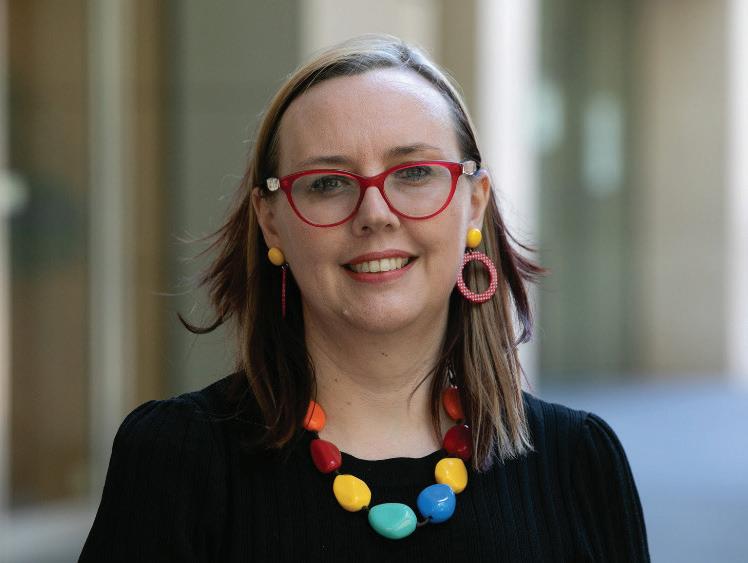










I

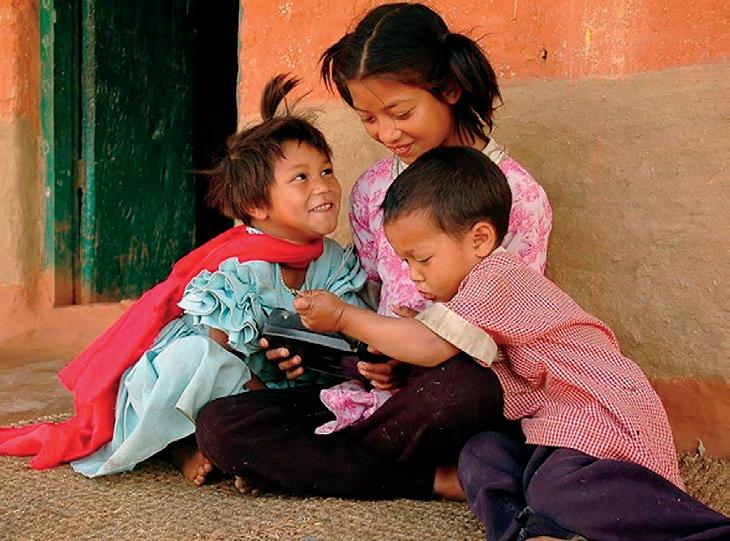
’ve often shared how I first became interested in disability because of the experience of my brother-in-law with Down Syndrome being excluded from serving in his church community on the basis of his disability. This was certainly the starting point of my interest and research in this space, but this incident no longer reflects the whole story.
Since that time, my family has been blessed to have a daughter with a range of disabilities who continues to enrich our lives daily as we see God at work in and through her. And my own experience of disability has also shifted, first through a permanent pelvic injury sustained in childbirth 15 years ago and then, more recently, through the development of a significant cardiac and respiratory condition which has completely turned my life upside down.
But in many ways, my experience of disability is not that unusual.
Approximately 18 per cent of Australians live with some kind of disability. That’s almost one in five people.


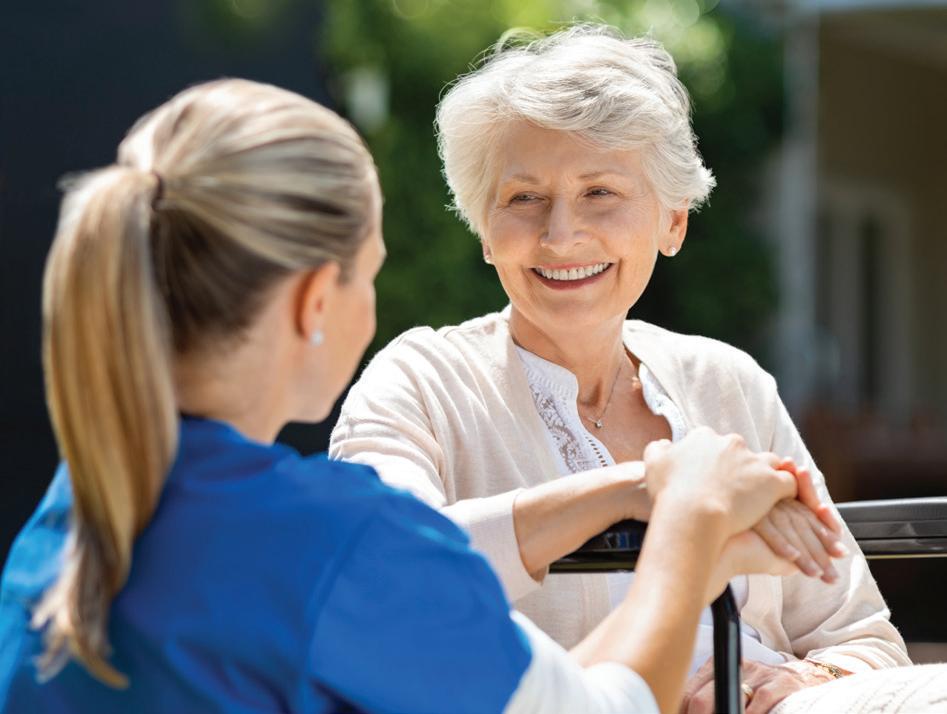

Not only that, but in countries like Australia with an ageing population, it is estimated that most of us will spend more than eight years of our lives with some kind of disability.
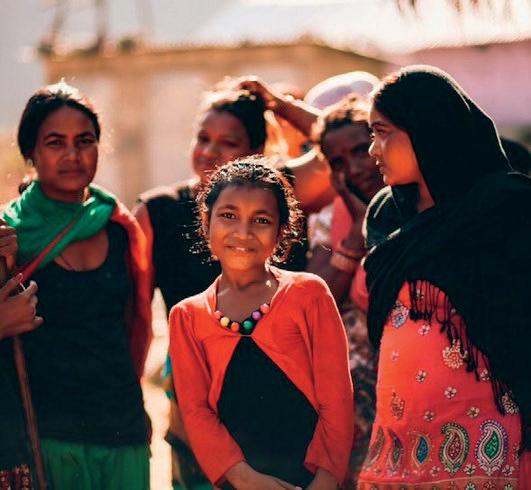
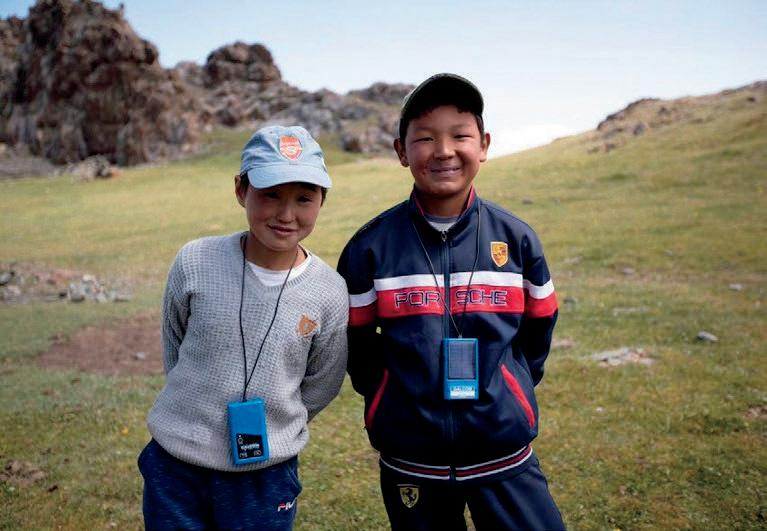
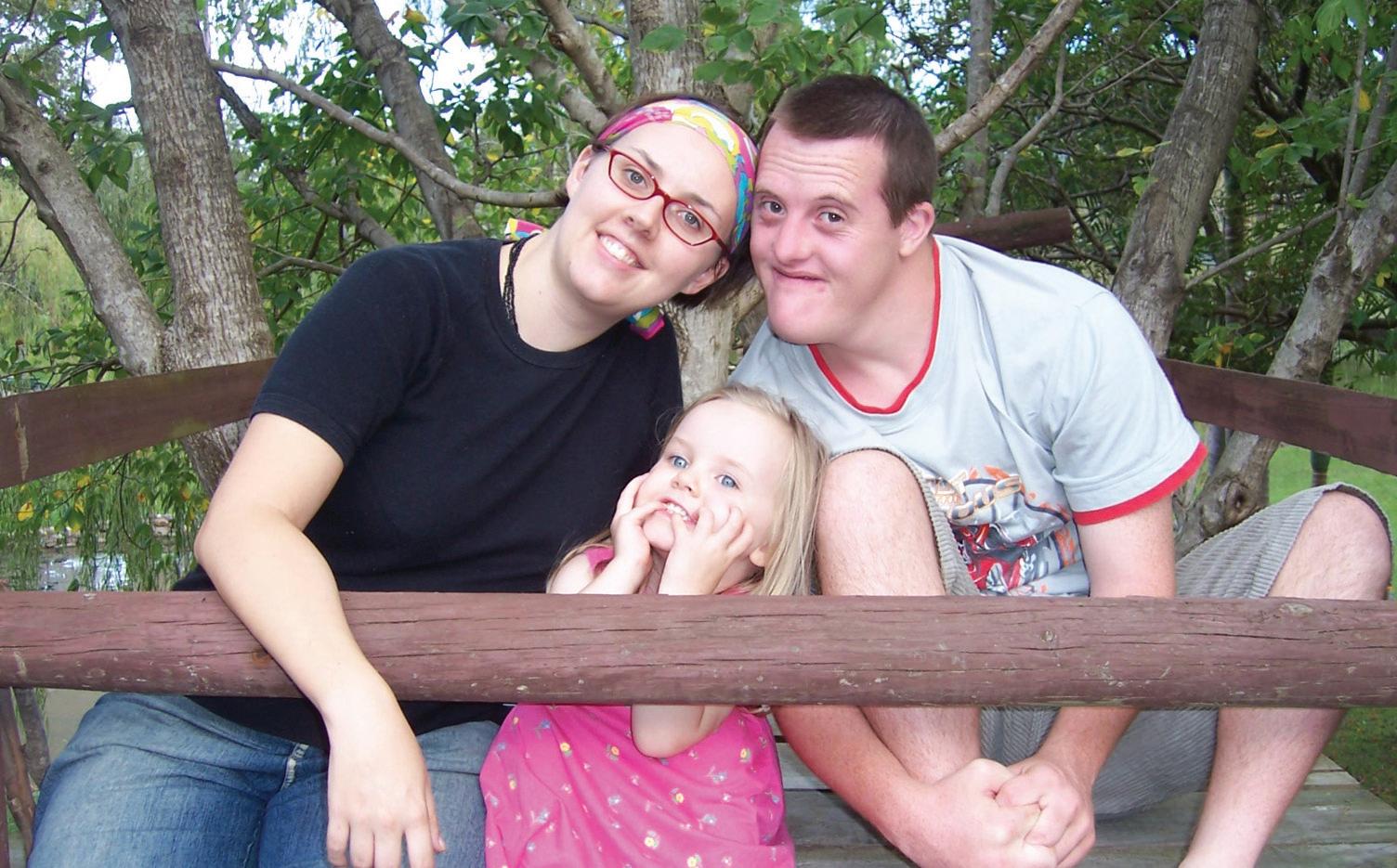
In some cases, people are born with a disability, such as my brother-in-law John with Down Syndrome. But even with genetic conditions, sometimes these aren’t diagnosed until later in life, as was the case with our daughter. Others, however, live with acquired disabilities as the result of an injury or illness like mine.
But what is clear is that disability is an inevitable part of the human experience in present lives. Statistically speaking, we will encounter the experience of disability in our lives and in the lives of those we love, as well as in many others we encounter in life.
Given these statistics on the prevalence of disability, what comes as a surprise to me is how many people in churches claim they have no connection at all with a person with disability.
According to data from the National Church Life Survey, almost 50 per cent of people answering the questions circulated about disability said that they did not personally know anyone living with
disability, either in their family, among their friends or in their church communities.
It seems to me there is a significant disconnect here between the Australian statistics on disability and the experiences of many churchgoers across Australia. How is it that 18 per cent of our population live with disability and yet almost half of those surveyed about disability do not know anyone with a disability? What might we be doing – or not doing – in our church communities that means churches are not always as welcoming and inclusive for people with disability as they could be?
My experience of researching and writing about disability in the Christian context over many years has shown me that there is a genuine desire among most Christians to be welcoming and to create inclusive church communities for people with disability. However, many church communities are simply not aware of the barriers that exist that can prevent a person with a disability from being able to attend church.
There are barriers that not only might prevent people from being able to get into church but there are also many other barriers that can prevent people with disability from being fully active and participating members of the church. More than simply being present on Sundays, many people with disability want to be able to serve on rosters, attend Bible study groups, attend church weekends away, participate in youth programs and be part of the life of the church more broadly.
As church communities, if we aren’t aware of the barriers that limit participation for people with disability, then we don’t know what we can to do help remove or reduce those barriers.
In writing Everyone Welcome: Accessible Church for All – guidelines for the Sydney Diocese of the Anglican Church, produced on behalf of their Social Issues Committee – I spent many hours with people living with disability and their families and carers. I heard stories – both heart-warming and harrowing – about people’s experiences in churches. People shared openly about what they wished their churches knew about the unique challenges faced by people with disability trying to participate in their church community.
In Everyone Welcome, I have tried to outline some of the barriers that can prevent full participation for people with disabilities in churches, as well as outline some of the steps church communities can
take towards reducing or even removing those barriers altogether. Some of these steps are lengthy and expensive. No one who has ever been part of a team requesting structural changes to their church building will tell you that installing a ramp is an easy task!
But so many steps cost little to no money or effort, and they can make a world of difference to the members with disability you already have in your churches and those who might attend in the future. Large print bulletins, clearer fonts on printed materials, allocated seating for people with vision or hearing loss are all steps towards ensuring greater participation that can be done with little effort.
It just requires us to take time to listen to the stories and experiences of those with disabilities in our communities so that we can make our Christian communities accessible for all.
Louise is Principal of Mary Andrews College in Sydney and writes on disability and the Bible. She is also Sydney Coordinator for CBM Australia’s Luke 14 program, on the resource team for Our Place Christian Communities, a board member of Embracing Ministries and a member of the core council of the Institute on Theology and Disability in the US.
8 9
Why I have devoted my life to disability inclusion
Louise Gosbell LOVE I GIVE I SAVE $30 1300 720 017 $60 THAT NONE MAY PERISH! GIFTS Gospel Gifts For The Unreached FEBC reaches the least, the lost, the hurting and forgotten through radio and media ministry. J316 gifts allow you to choose a variety of gifts that help fulfil God's Commission. From Bible speaker boxes to a Child's Basket of scriptural resources, you can be sure you're investing in the Gospel. Love Give and Save today That none may perish, just as God did in gifting Jesus to us. Visit febc.org.au, call us or Scan QR code below ABN 68 000 509 517 With a 39-year history, Excelsia College serves the community by developing future leaders across a range of higher education disciplines. We provide a holistic Christian education through our bachelor and postgraduate degrees. These courses drive better outcomes for our students with wide opportunities. • Graduate Certificate in Counselling • Graduate Diploma of Counselling • Graduate Certificate in Aged Care (online course) • Graduate Diploma of Aged Care (online course) • Graduate Certificate in Disability (online course) • Graduate Diploma of Disability (online course) No.1 NSW STUDENT SUPPORT SOCIAL WORK AND COUNSELLING POSTGRADUATE* * 2021 Student Experience Survey qilt.edu.au SCHOLARSHIPS AVAILABLE • APPLY NOW FOR 2023 69-71 Waterloo Road, Macquarie Park NSW 2113 • excelsia.edu.au ABN 50 360 319 774 | TEQSA PRV12064 | CRICOS Provider Code 02664K SCAN TO ENROL NOW
Louise with her daughter Lily and brother-in-law John.
Is your church disability inclusive?

If asked, most church leaders would affirm that they want their parishes to be places of welcome and inclusion for people with disability and their families. However, knowing what steps to take to facilitate this inclusion might not be immediately apparent.
There are some practical steps parishes can take to ensure they are working towards the goal of “removing those obstacles that currently prevent people affected by disability from hearing the gospel and sharing in Christian fellowship” (a goal determined at a meeting of the Sydney Anglican Church Diocese in 2018).
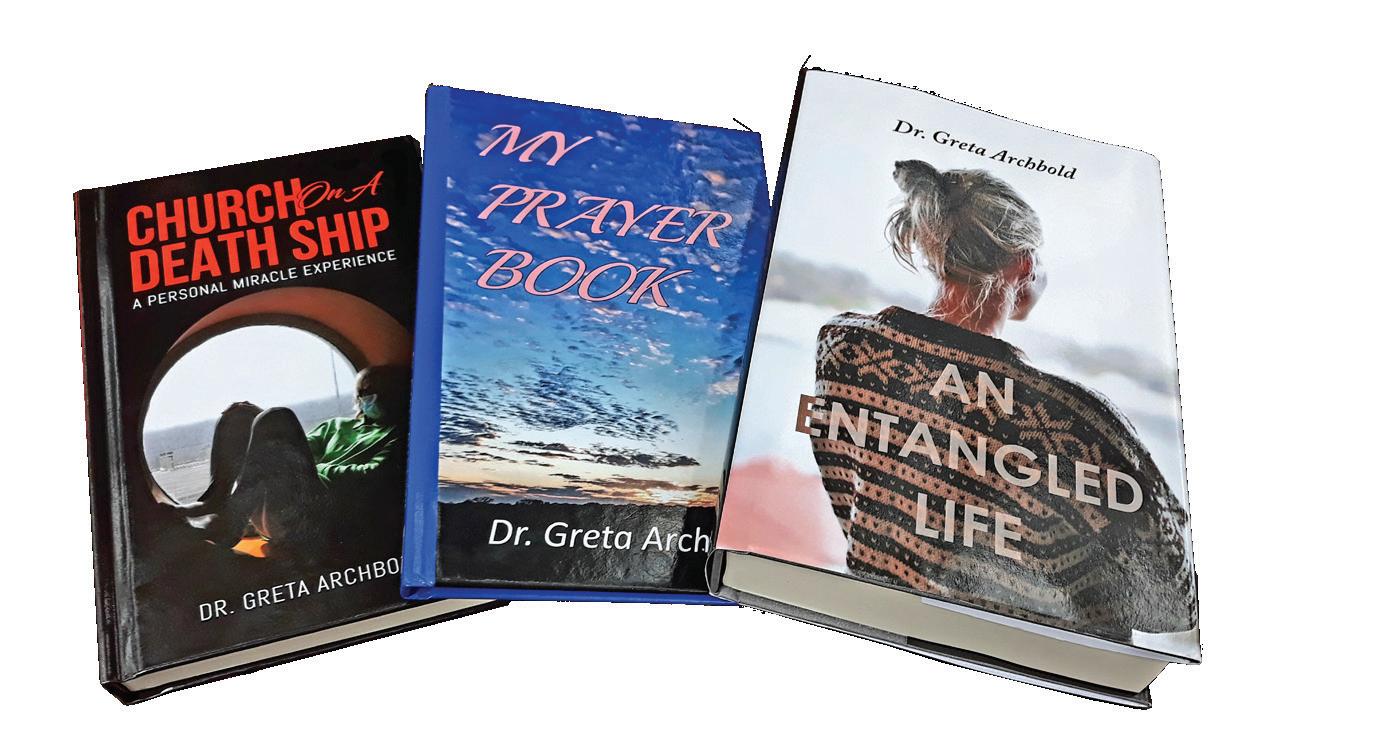



In order to make steps towards greater inclusion in your parish, it is helpful first to reflect on how well your parish is currently doing in welcoming and including people with disability and their families. It is helpful for church leaders to ask of themselves: To what extent are the following indicators evident in our congregations?







The presence of people with disability
Inclusion begins with presence. It is difficult for parishes to say we are inclusive of people with disability if there is no one with a disability within the parish. Current statistics indicate that almost one in five Australians have a disability. It may be useful to ask whether that number is reflected among the people in your parish and those who attend your church. If not, it is important to ask why this might be the case.
Accessibility
Accessibility in relation to people with disability refers to the extent to which all people are able to enter or use buildings or resources. This includes our programs, methods of communication and our attitudes towards people with disability. Once people with disability are present in your services, are they able to access all the public spaces on the
church grounds? Are they able to participate in your church’s programs, including Sunday services but also mid-week programs? Can people with disability access youth group, Bible study groups, church retreats and communal meals? Belonging to a church community means being able to be a part of the life of the church beyond just Sunday services.
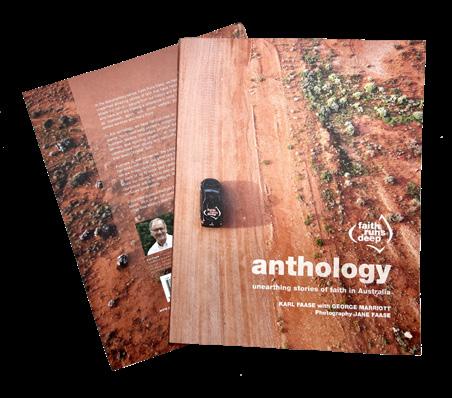

Hospitality
Although it is important for people to be able to have physical access into church buildings, what makes people feel like they truly belong in a particular church community is their relationship with others. While it is easy to focus our attention on how we greet people at the church door, in order to help people to feel like valuable members of our parishes our hospitality must extend beyond this.




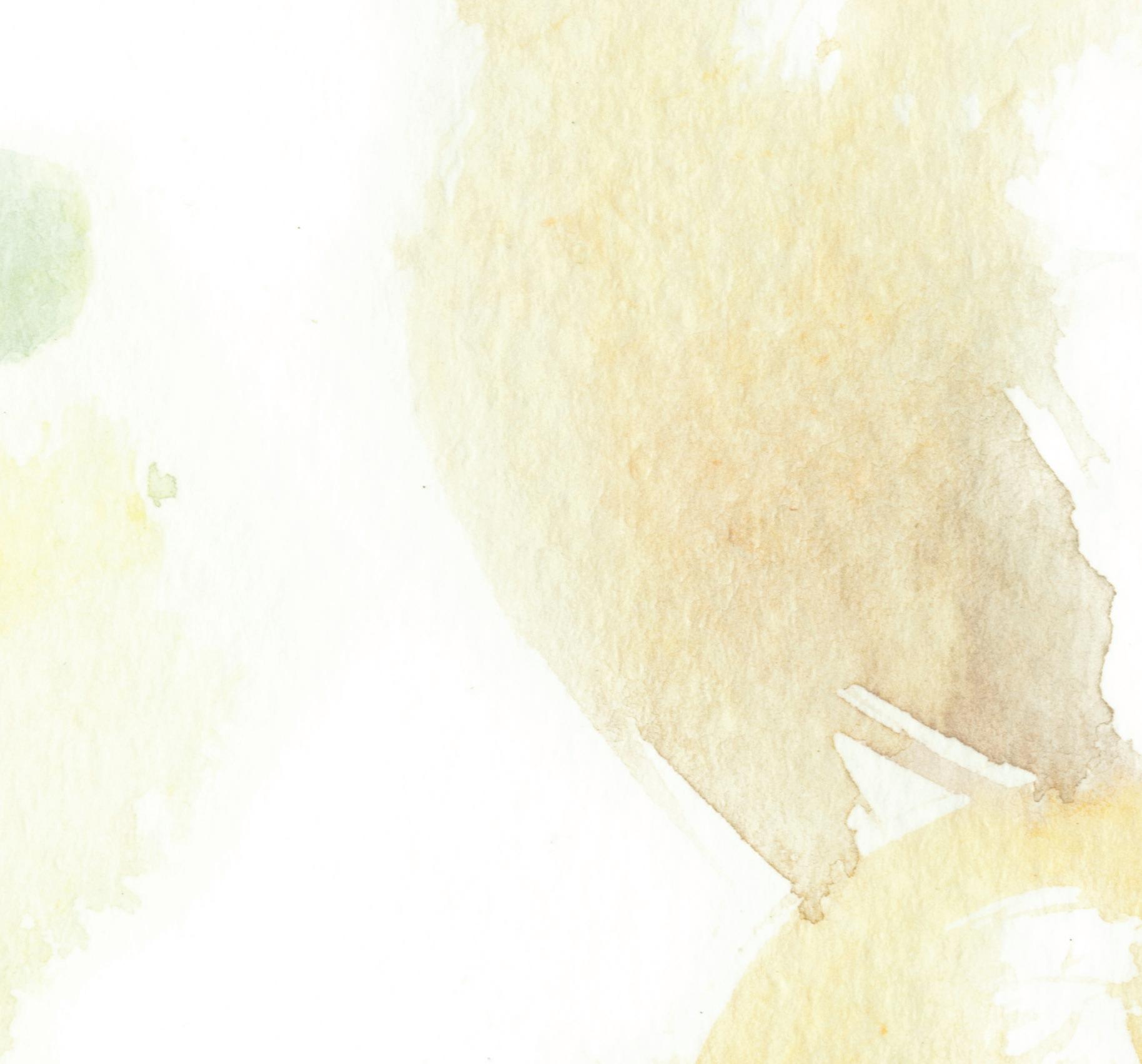

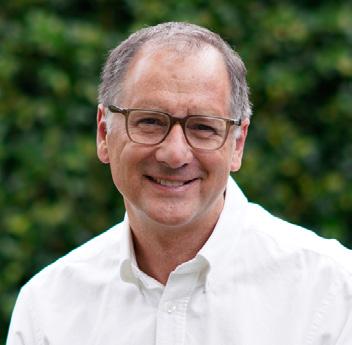

Hospitality must also include opportunities to build relationships over shared meals and shared lives. Being present at Sunday services does not necessarily mean that a person feels like a valued and contributing member of the church community. While people with a disability might be present in your church on Sundays, are they extended the same kind of opportunities to journey together with others as other members of the parish?

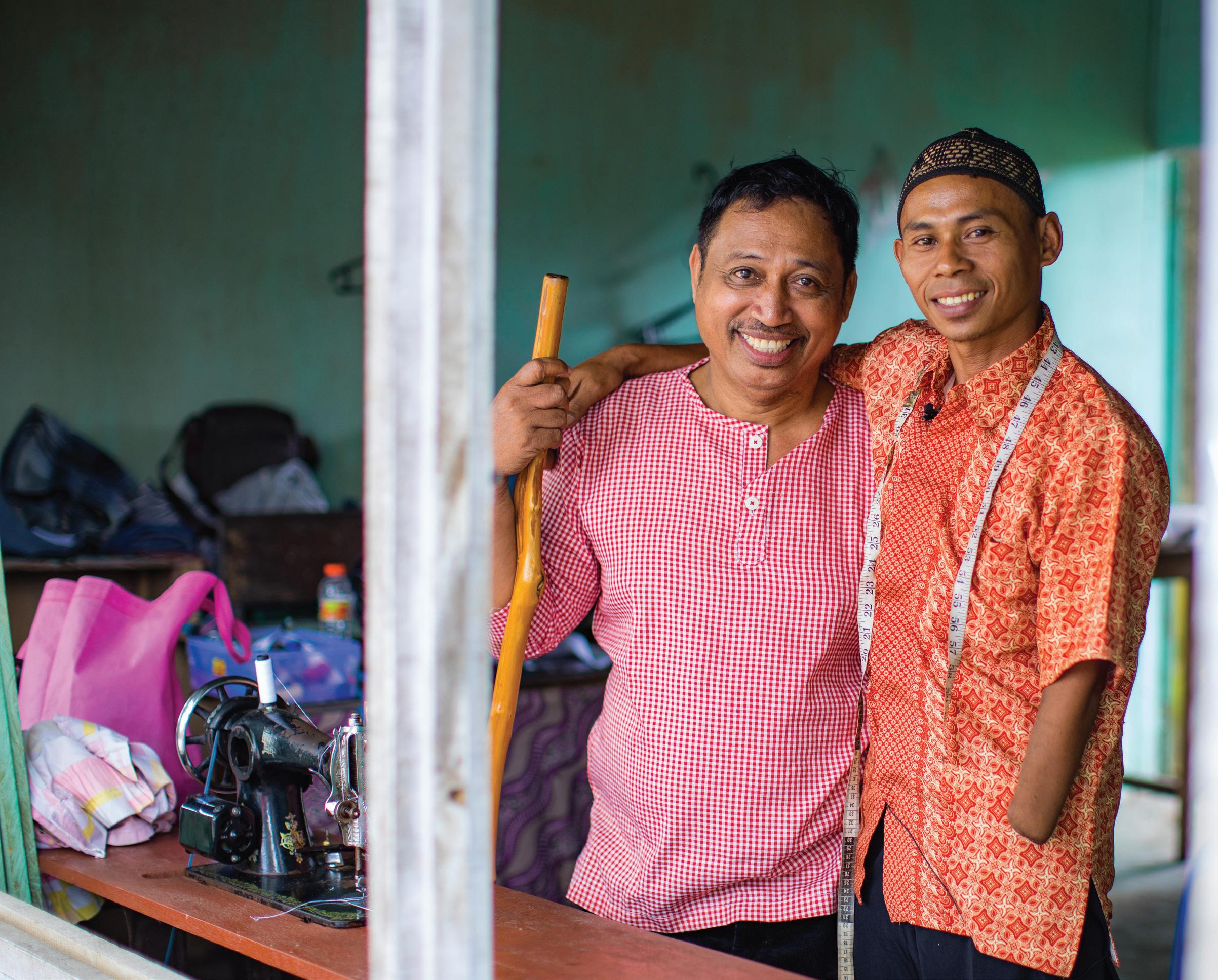
A sense of shared lives
A welcoming congregation will allow people with and without disability to serve alongside one another in ministry, rather than separating people with disability into specialist disability ministries, for example, by running separate programs for children with disabilities away from the rest of the children’s program.
Through opening up opportunities for people with disability to be on parish rosters, people with and without disability can work together and learn from each other, and be built up in their faith together in service to God. To what extent can
people with and without disability serve alongside one another in ministries in your parish?
You might answer all of these questions with a resounding yes. This is wonderful news! But, do all the members of your parish feel likewise? As part of the next step, you will be encouraged to communicate with the people with disability and their families within your parish to learn from their perceptions of inclusion and participation in the parish.
On the other hand, your answers to these questions might reveal that your parish still has some learning and growing to do on its journey towards inclusion. However, the benefit of this reflection is that it gives you a starting point and a way to measure growth and development as your parish moves towards greater inclusion.
Having a realistic understanding of how your parish is currently measuring up in terms of including people with disability is an important first step towards making changes that will be effective and long lasting.
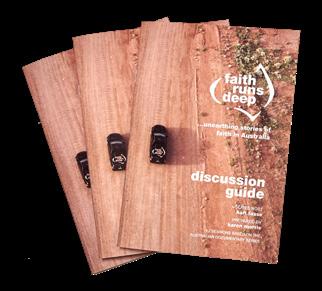
This is an edited excerpt from Everyone
Welcome – Accessible Church for All – Accessibility Guidelines for the Sydney Diocese of the Anglican Church – by Louise Gosbell, on behalf of the Social Issues Committee of the Anglican Church, Diocese of Sydney.



For more information, including seven steps to make your church more disability inclusive, scan the QR code to read the guidelines in full.

ALL THE
AND
THEY SOLD PROPERTY AND
TO GIVE TO ANYONE
(ACTS
www.everythingincommon.com.au THIS CHRISTMAS, GIVE GIFTS THAT FIGHT POVERTY AND BUILD HOPE IN THE WORLD. Scan here
BELIEVERS WERE TOGETHER
HAD EVERYTHING IN COMMON.
POSSESSIONS
WHO HAD NEED.
2:44-45)
Louise Gosbell
Jesus Club – a church community for people with intellectual disabilities – in Albury, NSW.
Does your organisation have the right cover? www.eainsurance.com.au Visit: drgretaarchbold.com or scan to purchase Three uplifting books about the importance of God in your life. They will change your life!
Gifts of aid a ‘testimony of God’s unfailing love’
“Generosity extended during such times of crisis and recovery is a testament of hope and God’s unfailing love for His people – through His people.”
These are the words of a Christian leader to Barnabas Aid, international aid agency to the suffering Church.
They were said in thanks for relief supplies sent to Christians in Tonga from Barnabas supporters in Australia after the island nation suffered a devastating volcanic eruption and earthquake in January 2022.
Thousands of Tongan Christians were sustained by bottled water, rice and other non-perishable foodstuffs shipped by Barnabas Aid’s new food.gives initiative.
It is just one way in which Barnabas is responding to the growing needs of Christians around the world.
In the 12 months since food.gives was launched in June 2021, the programme has delivered more than 1,000 tonnes of food, blankets, clothing and medical supplies to Christians suffering from food insecurity, conflict and discrimination.
That’s a staggering one million households reached. food.gives expanded Barnabas’ ministry from sending funds to support aid projects to also shipping boxes of dry foodstuffs and other goods donated by supporters.
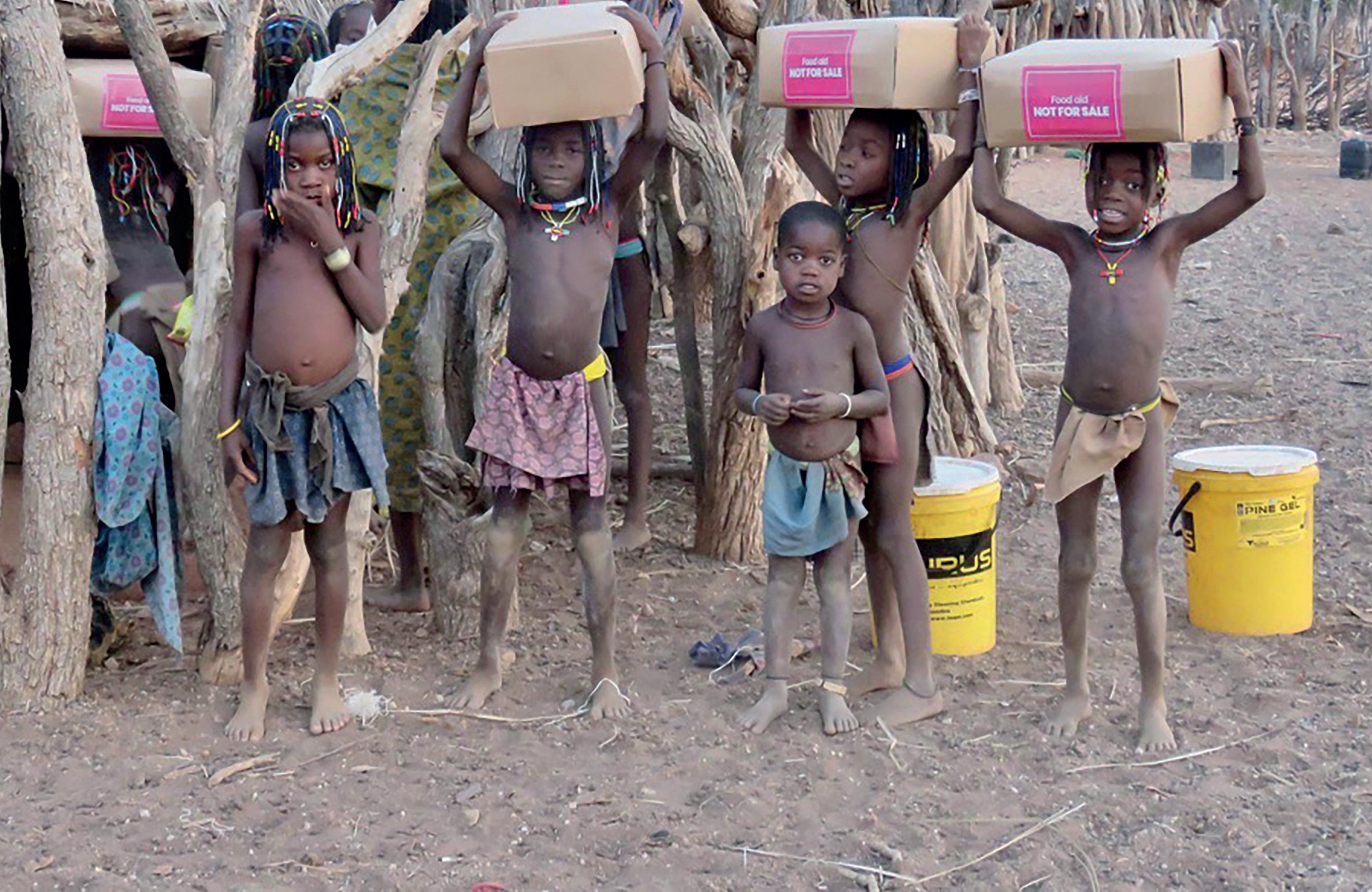
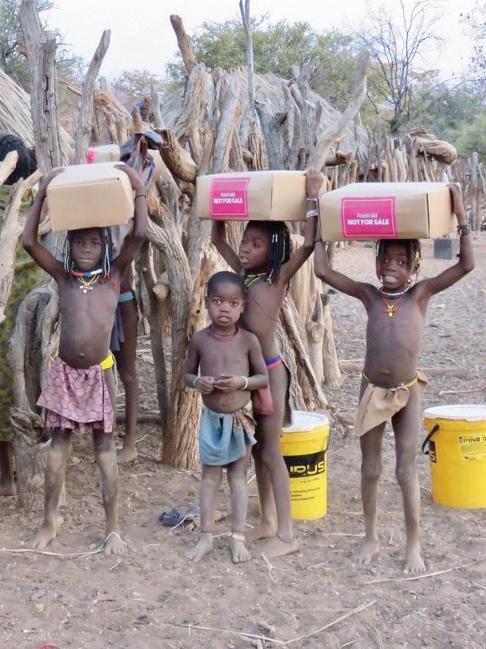
Barnabas’ rapid change of strategy to meet the needs of the suffering Church by sending aid directly has been acknowledged with a recent change of name from “Barnabas Fund” to “Barnabas Aid”.
Latest figures show that an unprecedented 2.3 billion people globally are facing severe food shortages with nearly 50 million on the brink of famine.
The conflict in Ukraine is the main short-term cause of the latest escalation in the global food crisis.
Barnabas Aid’s food.gives has sent almost 350 tonnes of aid, including food, clothes, medical supplies and even wheelchairs, to help Ukrainian Christians who have fled their homes. Gifts of money for shipping costs and practical aid have come from all around the world, including Australia.
Shipping containers full of food.gives boxes have reached Namibia, Pakistan and Jordan. We’ve also sent deliveries of nutrient-rich porridge ePap to tens of thousands of hungry and malnourished Christians in drought-affected Zimbabwe, Madagascar, Mozambique and Eswatini.
food.gives is moving into food production, dramatically increasing its ability to provide for suffering Christmas. A food dehydration machine –operated in partnership with a US-based Christian charity – will allow food.gives to produce 525 tonnes of dried food each year using surplus and unused food. How you can get involved
It is simple to become part of food.gives. You can order from us a free starter pack with instructions on how to make food.gives donations of dry foodstuff – rice, flour, dried lentils and chickpeas – that food. gives will then ship to those in need.
You can also volunteer to help at food.gives warehouses at East Bendigo, Victoria, and Osborne Park, Western Australia, helping to pack food boxes.
Or you could set up a food collection hub at your church.
Visit www.food.gives or phone (08) 8117 8079 to find out more about how you or your church can donate food and other practical aid to support Christians around the world.
You can also donate financially to help cover the costs of shipping.
5
reasons
for Alpha’s success
Andrew Atherstone
Alpha is a global phenomenon – one of the most famous brands in Christian evangelisation. Created in London at Holy Trinity Brompton and launched globally by Nicky Gumbel in 1993, an estimated 28 million people have attended the course, including celebrities like adventurer Bear Grylls. It has attracted huge attention in the world’s media, from serious journals like The Economist and The New York Times to fashion magazines like Elle and Fabulous Approximately 50,000 Australians attend Alpha every year, more than any other nationality outside Britain and North America. But what is the secret of Alpha’s success in reaching so many people with the message of Jesus Christ?

1) Connect with today’s culture Alpha’s core principle is that the apostolic gospel never changes, but the way it is presented needs to change in every generation to reach today’s culture. Gumbel noticed that young people often react against dogmatic preaching but enjoy exploring faith. Therefore, he dropped the older style of “crisis evangelism,” where an itinerant revivalist urges instantaneous conversion upon a huge crowd in a football stadium. Alpha instead pioneers “process evangelism,” built around food, friendship, laughter and discussion. It is dinner before doctrine, in a relaxed environment, allowing every participant to explore the Christian faith at their own pace.
Christianity. The doctrinal content has evolved over the years to soften any sharp edges that might offend different denominations. For example, in the early 2000s the Roman Catholic bishops in France urged Gumbel to revise some of his strong Protestant statements. As a result, the Alpha materials are now peppered with quotations from cardinals and popes, and the course is widely used by Catholic communities across the world from Colombia to Poland to Japan.
3) Aim for excellence
5)
Pray, pray, pray
From your home To their hands
food.gives is delivering life, opportunity, hope, and community one box at a time. The concept is simple: you donate, we deliver and our recipients eat. You can donate food, time, or money towards Christians in need around the world.
Gumbel also noticed a second cultural trend: that young people want to experience God but are often left cold by intellectual or historical arguments. Alpha is designed to appeal “to the whole person.” “God is not meant only to be understood in our minds,” Gumbel declares, “but also experienced in our hearts and lives.” Experiential Christianity, mediated by the Holy Spirit, is one of Alpha’s chief selling points. The Alpha Holy Spirit weekend has been highly controversial, but it is also a prime reason for its popularity.
2)
Church events often have an embarrassing reputation for tasteless food, lame music, amateurish artwork and out-of-date tech. Alpha aims to reverse that stereotype and the standard of hospitality is key. A typical Alpha evening includes good wine, tablecloths, flower decorations, jazz music and low-level lighting. “We expect people to feel offended by the Gospel,” one Alpha champion explains, “but we don’t want them to be offended by anything else.” Gumbel’s gospel presentations are carefully polished, every word chosen with care. In its annual campaigns, Alpha has employed some of the best designers and marketing executives in the business. If the most successful secular companies know the value of excellence, why shouldn’t the church also? Alpha has often utilised advertising space on billboards, buses, taxis, train stations and cinema screens, not to promote Alpha for Alpha’s sake but to make it easier for Christians to invite their friends.
4)
God is the great evangelist. Without the intervention of the Holy Spirit, all our missionary plans and programs are worthless. Gumbel’s mentor Sandy Millar once quipped that every church should invest in excellent PR – not public relations but “Prayer for Revival.” Alpha invests not only in the best professional marketing techniques but also, much more significantly, in dedicated prayer. Questions of Life describes prayer as “the most important activity of our lives.” The three keys to revival according to Gumbel, echoing Billy Graham, are “prayer, prayer and prayer.”
Every Alpha initiative is soaked in prayer, seeking God’s direction and blessing. That’s the reason for any long-lasting spiritual fruit from Alpha’s testimony to Christ. The secular press often pronounces Christianity’s demise: that the church is “on its knees.” But Alpha has taken that phrase and adopts it as its own – only when “on its knees” in prayer will the church be able to play its full part in God’s sovereign purposes.
A project of
www.food.gives | gday@foodgives.org GPO Box 612, Adelaide SA 5001 | (08) 8117 8079 or 1300 365 799
Barnabas Aid Australia is a charitable institution but gifts are not tax deductible. Barnabas Aid Australia is a registered business name of Barnabas Fund Australia. ABN 70 005 572 485.
Build Christian unity
Alpha consistently emphasises Christian unity. Questions of Life, the core Alpha text, insists that because the Holy Spirit lives in every Christian, no matter their culture or denomination, it is “a nonsense” and “a tragedy” for the church to be fractured into competing groups. “We need to follow the words of Jesus and cut out our petty squabbles and our judgementalism,” Gumbel exhorts. “We need to forget the past, drop the labels and unite around the person of Jesus Christ.” One of Alpha’s golden rules is never to criticise another Christian church or leader.
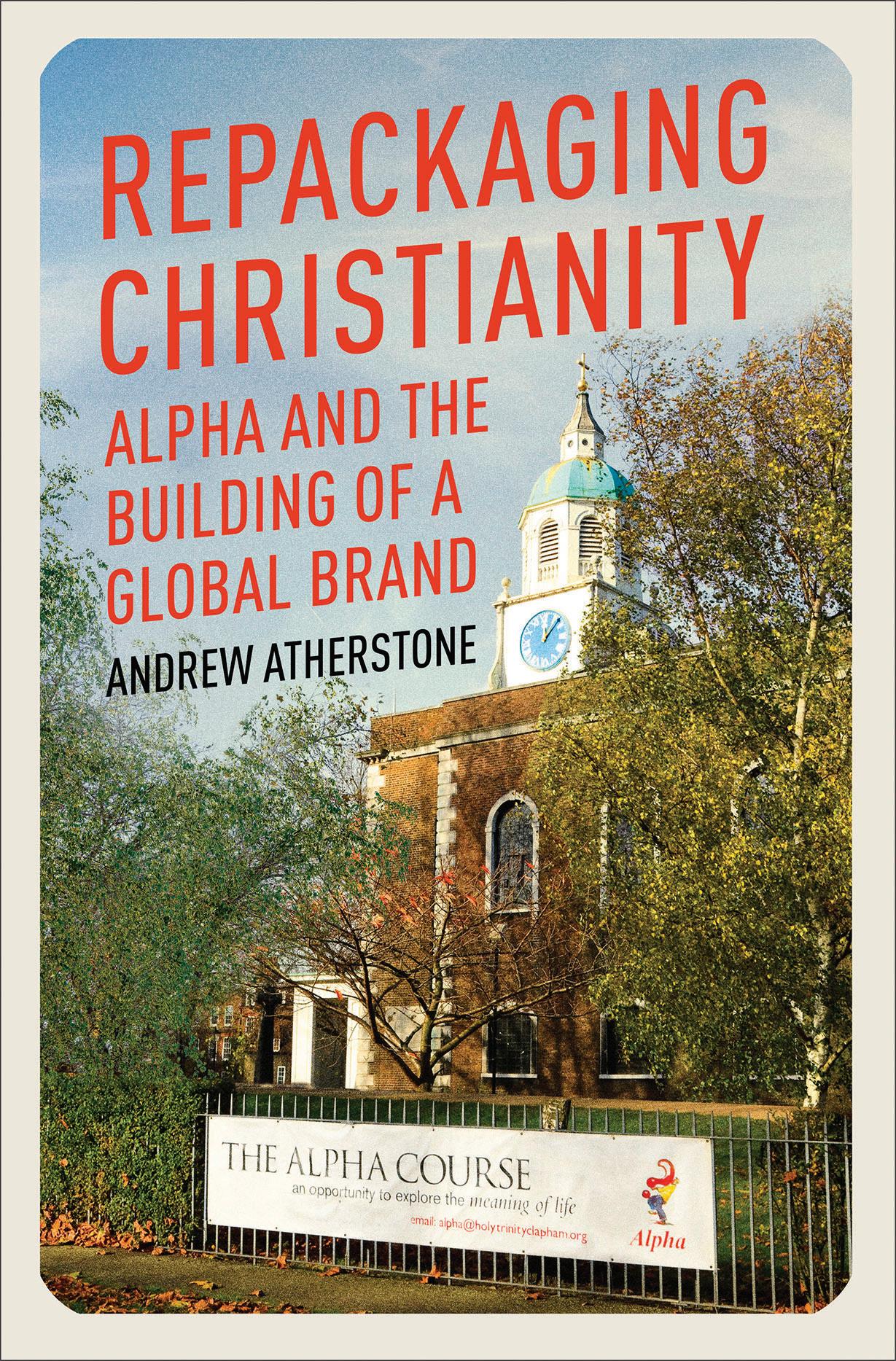
Alpha was born within charismatic Anglicanism, but it aims to focus on the core truths of
Keep innovating
Popular culture and technology change rapidly, so Alpha continually invests in keeping pace. Gumbel’s Alpha talks travelled the world first as audio cassettes, then videos, then DVDs, but, in a multimedia age, monologues no longer appeal to a young audience. The Alpha Innovation project in 2016 redesigned the whole package, with the Alpha Film Series shot on location around the globe, from the mountains of Vancouver to the beaches of Normandy, via the bustling streets of Hong Kong, New York, Paris and London. Each session is constantly dynamic, with multiple voices and creative visuals. The Film Series is now available in 53 languages, part of Alpha’s global translation strategy, “Project Pentecost.”
Embracing the digital revolution, Alpha is now more attractive, accessible and affordable than ever before, free to download anywhere on the planet.
During the COVID-19 lockdowns, many ran Alpha on Zoom or watched on YouTube and then met for discussion on Facebook or WhatsApp. The future is ripe with digital possibilities, reaching new global audiences.
12 13
As Alpha pioneer Nicky Gumbel retires, we examine the secrets to this course’s success.
BARNABAS AID SPONSORED PAGE
Andrew Atherstone’s new book, Repackaging Christianity: Alpha and the Building of a Global Brand, is out now with Hodder & Stoughton and is available at Koorong early 2023.
Hungry and malnourished Christian children in drought-affected Namibia hold up food.gives boxes filled with dry foodstuffs gener ously donated by Barnabas Aid supporters
Lifting hope in flood-ravaged Lismore
Penny Mulvey
Christmas is nearly upon us again. For many it’s hard to cast our gaze back to the beginning of 2022, as COVID and Russia’s invasion of Ukraine have dominated headlines and conversations. But for residents of north-eastern Australia, the deluge of rain in February is still very much at the forefront of their minds. In Lismore, NSW, residents are still living with the irreparable damage caused to much of their town, including homes and businesses along the Brisbane River.
At the height of the Lismore floods, Eternity spoke to Senior Pastor Dave Winter of Lismore’s Centre Church about the impact on his community. At that time, Dave spoke of the assurance that comes from the knowledge of God’s constant presence – the promise that he never leaves us.
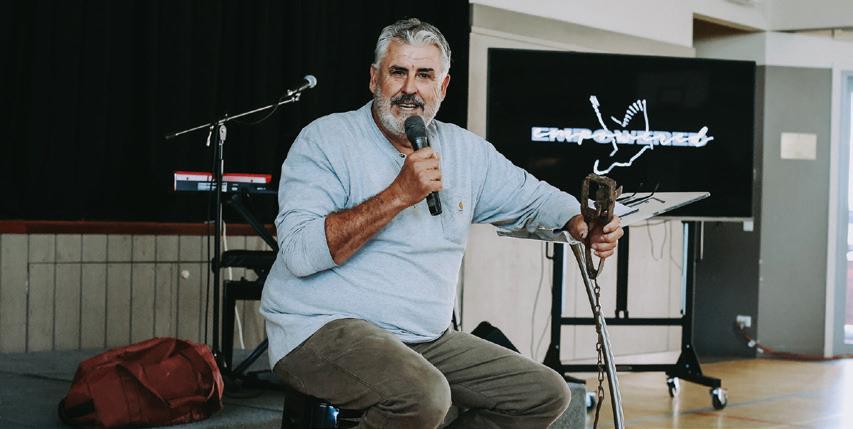
Now, eight months later, how is he faring? How are the people of Lismore managing in a world of shortages? Not enough building materials. Not enough tradies. Not enough staff.
The pastor is feeling pretty good. He had stepped away for 11 days to enjoy the delights of Tasmania. But he is still conscious of the personal impact of the two floods which hit Lismore in quick succession earlier in the year.
“It took a toll on me in that disaster messes up all your rhythms and strategies we have in place. A disaster chucks that all out of place and you don’t realise the impact it has until you get down the track a little bit and go, ‘Wow, I’ve lost all my life rhythms.’”
Dave’s rhythms are a morning quiet time, regular exercise and other daily habits.
“These rhythms are very important. So, if I have learned anything out of this disaster, it’s to stick to your rhythms as close as possible, because you don’t realise how it affects you. To be able to keep these disciplines gives you a little bit of normality when there’s no normality around you.”
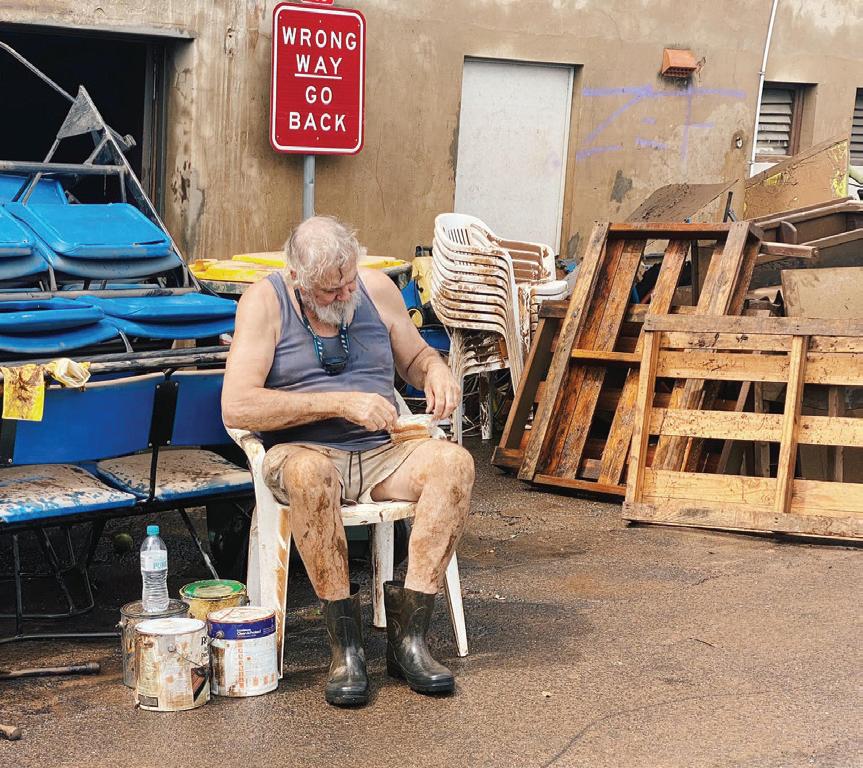
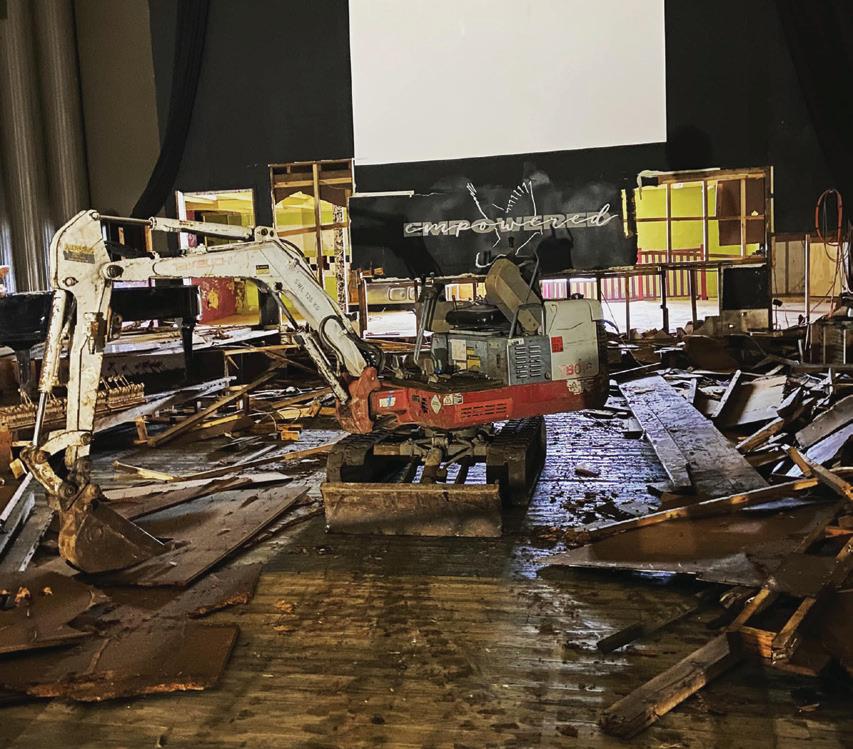
Centre Church, located in a building in the middle of Lismore’s CBD, had several metres of floodwater through it. Its members have been doing a slow gutting of the ground floor, and only recently pulled out and dismantled their much-loved grand piano. It took six men to add it to the pile of debris in the street.
Dave estimates that they have lost somewhere between $400,000 and $500,000 of contents, including sound and production gear, and all their seating and carpets. They have been gifted another grand piano, which Dave describes as “awesome”. And the way the Lismore community has responded to these months of recovery, he says is “incredible.”
“The community has just come together so well. It didn’t matter what your beliefs were or what you belonged to, we just seemed to come together and stick together,” Dave explains.
He sums up the resilience of the town as “it was really just supporting one another through it.”
Their church received so many donations that they couldn’t process them all. They dropped supplies to other centres also assisting the community.
Dave is an optimist. Is the town quite as buoyant as he is suggesting?
Rebekka Battisa wears many hats. Not only is she the Associate Pastor of Centre Church, she also heads up Our Kids and Our House, two charities that support children and their families while in hospital. This is not a small endeavour. Rebekka says they have provided accommodation to 10,000 guests over the past ten years! As well as these roles, Rebekka also looks after the church’s women’s ministry, Mums and Cubs ministry and the creative and music portfolio.
Rebekka’s roles put her in touch with people who are very vulnerable, often carrying big loads, managing children whose school was closed due to flooding and are now adjusting to new environments. Some have lost everything in the floods and are living in a tent in the middle of their flood-damaged lounge room.
How does Rebekka think the Lismore community is tracking?
“I think it’s been a real rollercoaster for everyone.
I deal with a lot of the businesses in town as well, and a lot of the mums and dads. And so, what I have seen is, after the first flood, absolute shock, because there was such devastation and people just did not expect that we would get water where we got water.
“Having all the petrol stations taken and Woolworths; all our normality was taken. Everyone was in shock.”
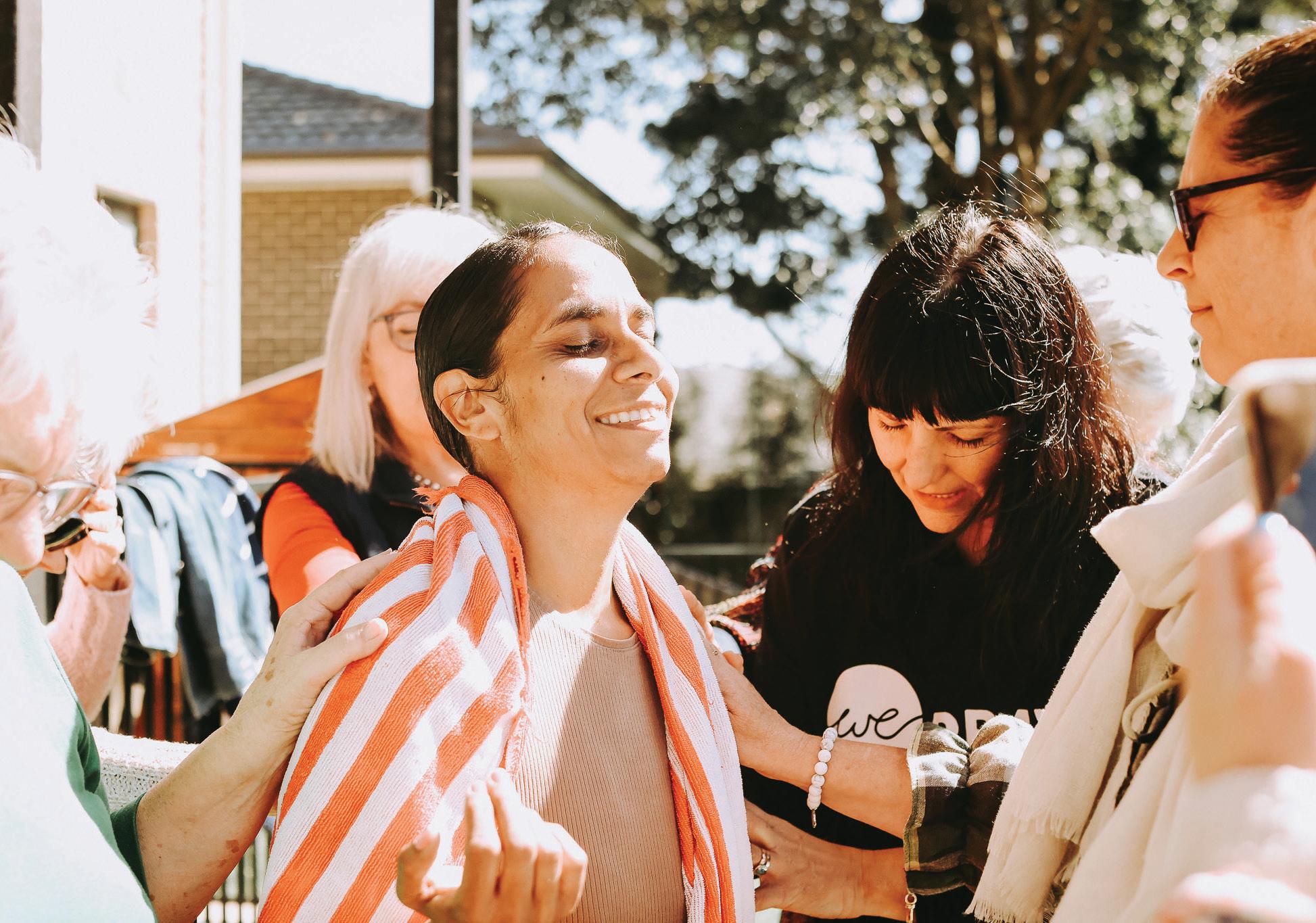
Rebekka is proud of her local community. The resilient people of Lismore have given generously to support the work of Our Kids and Our House. Her love and respect for her town and its people comes out in her voice, as well as her words.
“Our community is very much a beautiful kaleidoscope of colours or it’s a very beautiful woven quilt. We are extraordinary. Nimbin’s part of Lismore. So, we’ve got our eclectic, gorgeous ones who moved in here in the 70s – dare I say, hippies. Then you’ve got business people who have been here all their life or have moved in, then we’ve got big business here as well, and lots of farmers and family.
“Health and education are probably our biggest industries. Moving forward, I think education and health are the ones that are going to keep Lismore going for the time being, as all the other industries have been smashed.”
Rebekka’s office is in Lismore’s CBD, and there is sadness in her voice as she recounts that while rebuilding is underway, walking through the town’s centre, perhaps as little as 10 per cent of businesses have reopened.
“It’s pretty extraordinary,” she says, “because eight months on, you’re still dealing with a floodaffected, damaged city. So, you feel like you’re running and you’re trying to do a sprint, but you’re actually in an ultra-marathon and you’ve only just realised it. So I feel like people are hitting the wall.”
Over 2000 homes were destroyed by the surging

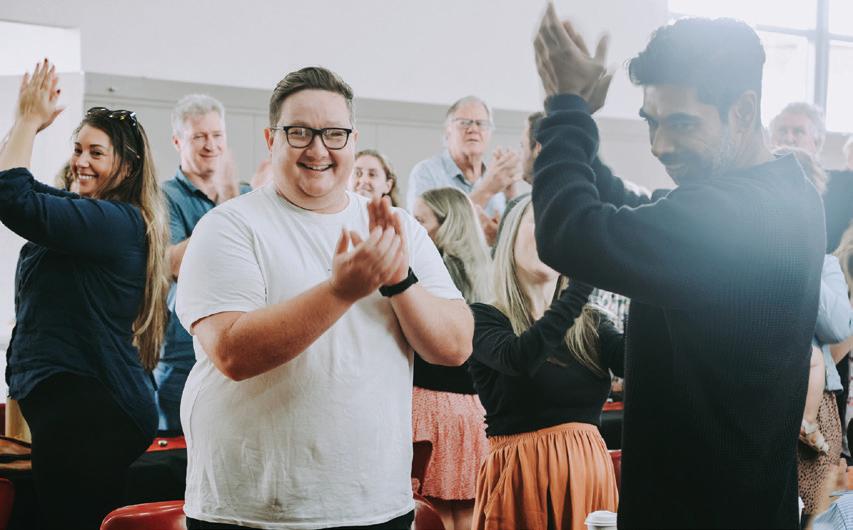
floodwaters. Rebekka points out that is a lot of new kitchens, bathrooms and living rooms.
“Even if you’re setting up your office and you’re needing 12 chairs, well we ordered 12 chairs five or six weeks ago. They still haven’t turned up because everyone needs chairs. Everyone needs their work desks.”
However, despite all that people have experienced – and there’s always lots of tears, lots of hugs and lots of opportunity to pray with others – Rebekka agrees with Dave that Lismore is resilient.
“I think Lismore is the resilient capital of Australia,”
she tells me. “I just want to say that. But I think too, they’ve done it tough. This has been a very tough season … You can’t remain permanently buoyant. I mean, you can try, but it’s difficult to.”
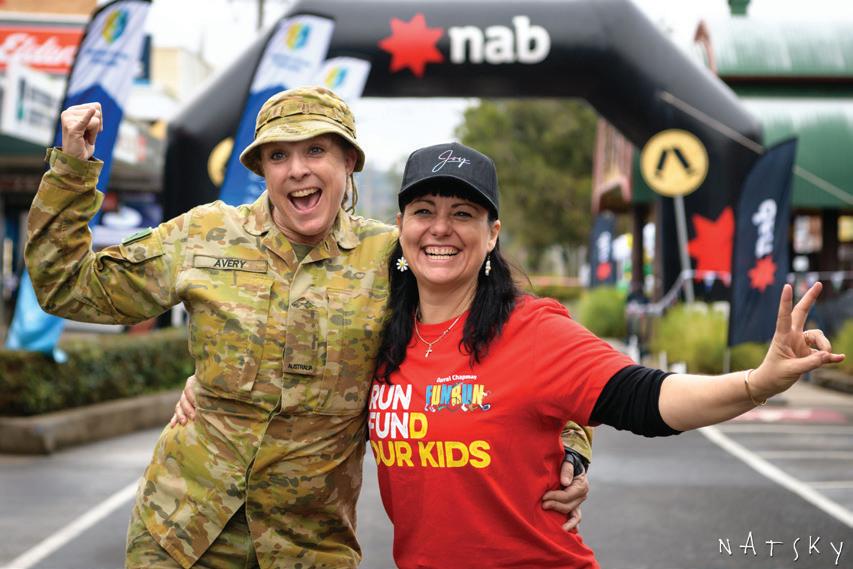
For some years now, Rebekka’s catchcry has been “God’s got that.” God has got her family through some seriously hard times. Floods are seriously hard times as well, but she knows that with lots of effort from the strong community of Lismore, good times will return. Because God’s got that too.
In the meantime, as Christmas approaches, several churches are coming together to celebrate Jesus’ birth. They will share meals, enjoy fellowship and bask in the grace and hope of the risen Lord Jesus.
And already Rebekka has seen evidence of a
recovering community. She has been helping to organise an annual fun run, held to raise money for the My Kids charity she is involved with. They decided to hold it this year, but not charge for the privilege of running.
“We just did it for free and we asked everyone to wear red for the heart of the Northern Rivers, which is what we call this ward.
“So everyone wore red and 650 people turned up, and then all these other people turned up and cheered all the people doing the run through the city. And it was magnificent.
“It lifted the tide. It was almost like the hope was lifted.
“And as we move towards Christmas, I think all the churches in Lismore ... we need to lift the hope in Lismore by celebrating Jesus who is our ultimate hope, by gathering people and bringing a celebration where there hasn’t been much celebration.”
1.
5.
3.
6.
4.
2.
7. The Centre Church Lismore congregation.
14 15
Photos from left (by Centre Church Lismore):
Chester Carter takes a break during flood clean up at Centre Church.
The ground floor of Centre Church Lismore is gutted.
Dog outside Centre Church Lismore. Photo by Rebecca Johnson.
A post-flood baptism at Centre Church Lismore.
Dave Winter, Senior Pastor of Centre Church Lismore.
A member of Lismore 41st battalion with Rebekka Battista at the fun run. Photo by Natsky.
3
5 6 7
2
4
A public holiday to celebrate the gospel?
Phil Edwards, CEO Vision Christian Media
On 3 February 1788, Reverend Richard Johnson was the first to preach the Gospel on Australian soil in Sydney. The arrival of the Word of God on our shores was hugely influential in the shaping of modern Australia, resulting in many of the good things we enjoy today. When you consider its true significance, perhaps it should be marked with a public holiday!
On my first trip to Thursday Island recently, I was surprised to learn that there is indeed a public holiday in Australia that celebrates the arrival of the Gospel, backed by a story of incredible transformation that is virtually unknown in our nation. This day is known as the Coming of The Light and is celebrated each year by Torres Strait Islanders on 1 July as a public holiday.
Thursday Island is at the tip of Australia, 30km from Cape York in Queensland on the Torres Strait amid hundreds of Islands. Torres Strait is a special place, but in the 1800s, it was marred by horrific conflicts and retribution killings between


different island groups, and outsiders were grossly exploiting the area. But half a world away, a group of missionaries felt called by God to put aside the comforts of home to travel to what must have seemed like the ends of the earth to bring light into the darkness.
On 1 July 1871, Reverend Samuel MacFarlane and South Sea Islander evangelists and teachers from The London Missionary Society arrived at Erub Island. They were met by a Warrior Clan elder who initially saw them as a threat and confronted them— no doubt he was willing to slay them to defend his people. However, as a sign of humility, MacFarlane dropped to his knees and presented a Bible as a gift. The warrior accepted the Bible, and with this act of kindness, Christianity was first introduced to the people of Torres Strait.
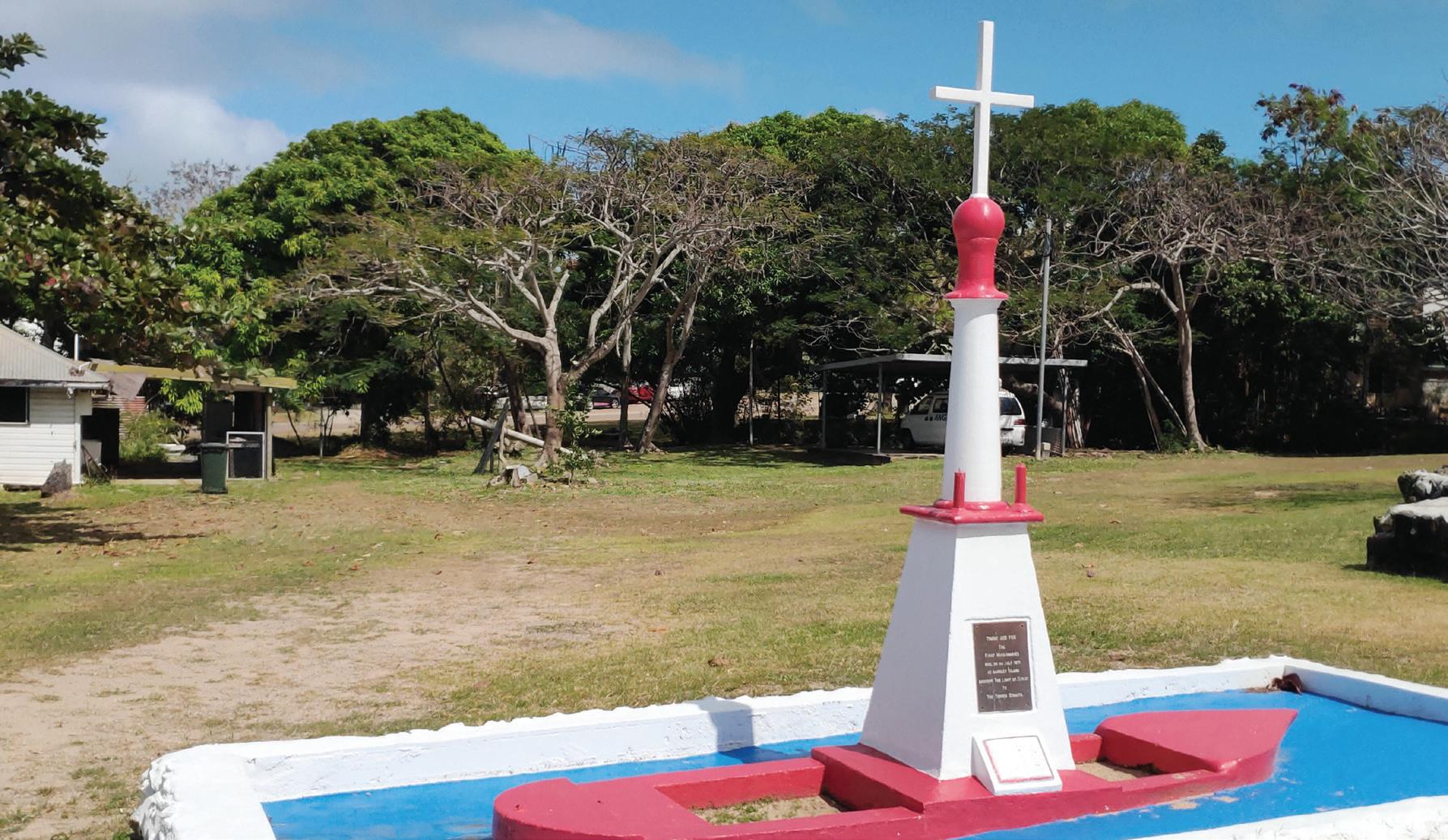
Christianity was readily embraced by the people, and an amazing thing followed—the conflicts and killings previously commonplace stopped.






















The significance of the Coming of The Light is that it is recognised and celebrated by 37 different State and Federal Government departments on Thursday Island. The Coming of the Light Festival is a major event where memorial candles are lit, hymns are sung, and there is a re-enactment of the missionaries’ arrival, dancing and feasting. It represents coming out from darkness into light and symbolises an awakening after spiritual darkness.

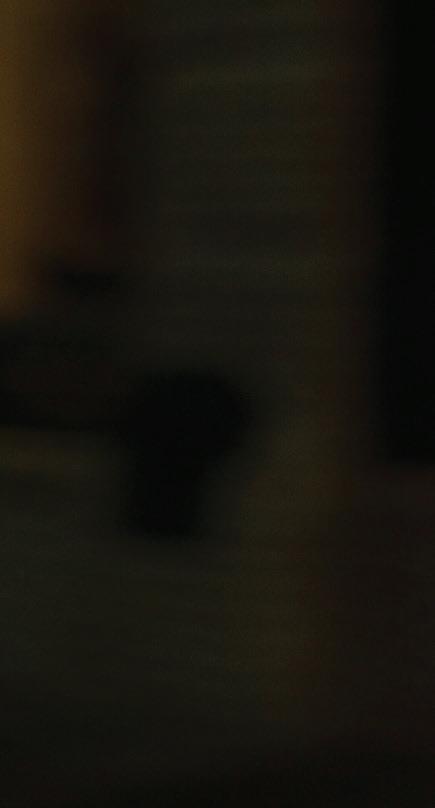


I was so encouraged to learn this part of our history and grateful for these missionaries who were willing to be used by God in a place where Vision, the ministry I lead, is working alongside local believers to keep sharing this life-changing truth of the Gospel.
STORIES WITH NAOMI REED









At 16, I suffered a mental breakdown. I left school with no dreams, visions or prospects, and I drifted into various technical jobs.



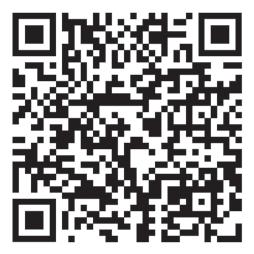



During this period, I loved cycling and I began to organise long rides with mates. It “saved” me in many ways and led to competition cycling.
It was also a catalyst causing me to have a runin with the law. Being a dedicated sportsman, I was, at times, a bit short of cash, so my mate and I organised an “inappropriate activity” to raise some funds. Alas, police were informed and we were duly arrested, charged and bailed on an indictable offence.















I was 23, and I hit the wall. As well as awaiting my third court appearance, I had a series of broken romances, my knee was giving me trouble, hindering my cycling, and I was a very discontented and disillusioned young man.


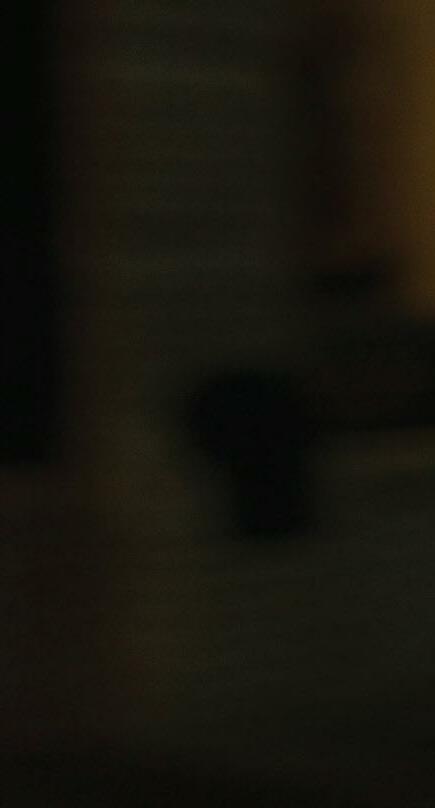






As it happened, a cycling mate of mine was contacted by a group of Christian young people and he became a believer in Jesus. Up until then, I had absolutely no idea what made a person a Christian. But my mate invited me, and others, to an evening Sunday service and we went. We had nothing else to do. During the service, I began to feel completely undone. For some reason, I sensed in my mind an urge to say, “God, help me!”
Well, nothing outlandish happened at the time –no flashing lights, or “complete peace,” but I knew I wanted to go to church the following week. I kept going and, during the next few weeks, an enormous
change occurred in my thinking and personality and attitudes and morals. I know now it was the work of the Holy Spirit. Mind you, at the time, I really didn’t know much at all about Christianity. The change was exponential, and I decided to read through the whole Bible, from beginning to end, which I did. I also met a young lass and she later became my wife. I started attending morning church, and youth Sunday school. I was asked to go on the diaconate and become the Boys’ Brigade leader. Appreciate this didn’t happen all in one year!

There was more in the pipeline. I went to court for the final case and thankfully, was declared “not guilty.” It was strange finding myself in a holding cell beneath the court in Oxford Street as a developing Christian. It was a valuable lesson on humility and grace!
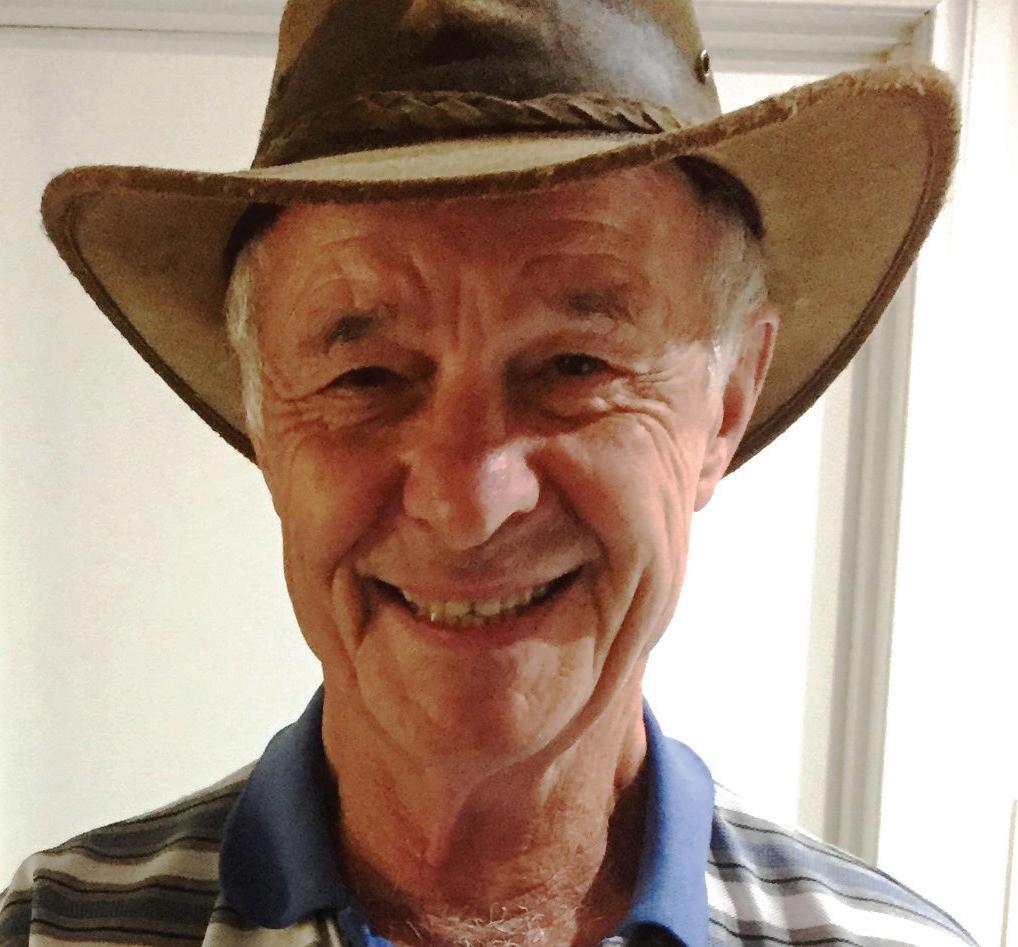
Then, a year after our wedding, my wife and I, with eleven other friends, bought a double-decker bus and drove to Uluru. Without all the gory details, we had an “on board” gas explosion and I was two feet away. I took the full blast and I was burnt on about a third of my body. I jumped out of the bus (going at 20mph) and rolled in the bulldust to put out the flames. I was a bit of a mess!
It took three hours to reach the nearest outback cattle station to make a radio call to Alice Springs. An ambulance arrived the next day after being temporarily lost, and I was taken to the hospital and placed in isolation. Having been badly burnt and covered with blood, dust and grime, septicemia
was a distinct possibility. Alone in that room, I thought a lot about the fragility of life. What did I consider really important? By then, I was a qualified engineering surveyor, but I began to consider becoming a full-time Christian worker. I told my wife the next day and she said that she’d had exactly the same thought that morning.
For the next 40 years, I trained and then became the pastor at Oyster Bay in southern Sydney. The verse in Hebrews 13:8 has always been important to me. “Jesus Christ is the same yesterday and today and forever.” Jesus is the same today, as he was in the Gospels and when I was 26. God is always at work in our lives through his Holy Spirit. Sometimes, the change is miraculous!
The older I become, the more I find myself contemplating eternity. It lasts forever! All the discouraging things that we go through here (which are many) are temporary, but eternity is forever. I’m very thankful to God!
Phil’s story is part of Eternity’s Faith Stories series, compiled by Naomi Reed. Read more Faith Stories at eternitynews.com.au/section/faith-stories.
Hebrews 13:8
17 VISION CHRISTIAN MEDIA SPONSORED PAGE
FAITH
Phil’s story | Change can be miraculous!
‘I rolled myself in the bulldust to put out the flames’
“Jesus Christ is the same yesterday and today and forever.”
Family and Youth Services Inc. We seek to cater for the
and Torres Strait Islander people
Australia experiencing hardship, grief and loss. Please partner with our Indigenous Chaplains to help people when they need it most Your tax deductible gift will be matched dollar for dollar by Bible Society Australia. Supporting Indigenous people through every crisis imaginable!” “ Visit: fys.aef.org.au/programs/community-chaplaincy Call: 0498 611 109 | Email: aef@aef.org.au Scan me to donate now
Aboriginal Evangelical Fellowship
holistic needs of Aboriginal
of
Download our free app today! vision.org.au
Gender
Surely it couldn’t be done. How do you run a national survey across thousands of local churches in cities and towns across the nation in the middle of a pandemic? Our research team have been running the National Church Life Survey (NCLS) every five years at the same time as the National Census, but this time has been the hardest challenge yet. How can a survey be used to hear the experiences of churchgoers and local church leaders in the midst of such disruption? Some states were in lockdown and many churches weren’t even meeting together. Survey projects in other countries were put on hold.
Yet, we have done it – together! Over 126,000 people in more than 2100 local churches in 20-plus denominations and movements took part. Surveys in nine languages, customised for different groups, were offered in both paper and online formats. People gave their insights on faith and church life, gathered together and on their own, in churches, in parks and in homes.
Why did we persist?
Church leaders told us they felt blinded and that this could be the most important National Church Life Survey ever run to understand what was happening in local churches.
The news from survey results may be tough, but as leaders said to us, “Now is not the time to bury our head in the sand. We need to know what has changed so we can respond in informed and helpful ways.”
So, thank you to all those who put the hard work into making it happen. Your persistence and patience have been incredible. You have been part of the largest, longest-running survey project of local church life in the world. As a research team, we are humbled and grateful.
How COVID impacted the church
Education
have degrees
44% of church attenders have university degrees, up from 37% in 2016
(1 Cor. 12:27)
Building community is top priority
Australian churchgoers highly value the community they find in their local churches. Latest results from the National Church Life Survey found that 87% have a strong sense of belonging, and 79% have found it easy to make friends.
The negative impact of COVID is highly likely to be why attenders chose “a strong sense of community” as their top priority for their local church in the coming 12 months.
Building a strong sense of community identified as top priority for local churches.
Nurturing spiritual growth remains critical There are many ways to find community, and the 11,400 churches around Australia play a vital part. However, local churches offer more than simply a way to connect with others. They are communities of faith. People share in common their journeys of faith as followers of Jesus Christ.
As such, “spiritual growth” was the other key priority that attenders identified for their churches. Some 41% of attenders agreed that they had experienced “much growth” in faith in the past 12 months, a drop from 47% in 2016. It was a season where it was harder for local churches to provide sustained faith nurture. Yet, in challenging and disconnected times, three quarters of all church attenders continued with private devotional practices at least a few times a week (53% do so on a daily basis).
4 in 10 experienced much growth in faith in past 12 months.
3 in 4 practise private devotions at least a few times a week.
COVID and church involvement
We have heard anecdotes that suggest COVID may have disrupted long-term habits of many churchgoers. While we don’t know the full impact yet, we do have some initial clues.
In the National Church Life Survey, church attenders were asked: “Compared to 2019 (before COVID), are you more or less involved at this local church?” Results found a solid committed core of around six in ten church attenders with four in ten who are changing their engagement. Two in ten are more involved, while two in ten are less involved.
Compared to 2019, how involved are attenders in their local churches?
These results vary significantly by denomination, with more than half of Catholics attending Mass at more than one place. However, around a quarter of Protestants also reported attending other churches (15% attending in person and 15% online).
Rather than talking about who is “in” or “out” of church life, we can think in terms of those who are part of a core group and those who are “orbiting.” Firstly, a very stable core of attenders has maintained its same level of involvement since COVID-19. “Smaller but strong” might be the theme for this core. Around this core there is a fringe group “orbiting” on the periphery. People who may fit this group include those changing their levels of involvement or visiting other churches.

Church attenders put faith into action with practical care
Jesus calls us to love our neighbour and help others in practical ways (Luke 10:25–37) and to be “salt and light” in our communities (Matthew 5:13–16). During the past five years local churches enabled attenders to serve their communities by offering care, welfare and justice activities. This was particularly evident during the COVID pandemic.
Most attenders look forward with hope and confidence
Healthy churches have vital leadership and directions for the future. When a local church community shows a readiness to act or a culture of “collective confidence,” other signs of health are often present.
Committed and confident?
Around six in ten attenders are aware of a clear vision for the future and remain strongly (34%) or partly committed to it. Around three quarters (76%) of all church attenders are either fully or partly confident that their local church can achieve its vision, goals or directions. Not surprisingly, the levels of full confidence have slipped in the past five years from 48% in 2016 to 44% in 2021/22.
Attenders are open to new possibilities Healthy churches are open to innovation. Our research has confirmed this characteristic in many different studies. Looking forward, we asked attenders to respond to three different questions. Did they think their local church was open to new possibilities? Did they think their local church leaders encouraged innovation and creative thinking? Finally, would they, personally, support the development of new initiatives?
The results are in:
68% say “My church is ready.”

About the National Church Life Survey
Attenders were also asked if they attended church elsewhere. Around six in ten attenders only attend one church. However, four in ten say they also attend elsewhere in person (26%) or online (17%).
Some 28% of attenders are involved in such activities hosted by the local church. Many attenders also serve others in informal actions of care and social action. Some examples of how church attenders have taken action include: 73% have donated money to charity; 52% lent or gave money outside their family; 42% helped someone through a crisis; 36% gave possessions to someone in need; 32% visited someone in hospital and 31% cared for someone who was very sick.
64% say “Our leaders encourage innovation and creativity.”
79% say “I would support developing new initiatives.”
Source: 2021/22 National Church Life Survey (n = 119,053)
•
Who took part?
How did it work?
18 19
Well done, Team Church!
“Now you are the body of Christ, and each one of you is a part of it.”
Percentage 0 100 40 Less
the same More involved 60 20 80 19% 61% 21%
2021/22 National
Life Survey (n = 119,053)
Involved About
Source:
Church
4 in 10 attenders attend more than one church. 61% female, 39% male
Age
2021 0 15-29 yrs 70+ yrs 10% 22% 36% 32% 30-49yrs 50-69yrs 10 20 30 40 Percentage (%)
Age of church attenders
44%
126,000+ attender surveys completed
2100+ local churches
20+ denominations and movements
•
•
•
Surveys in nine languages
Completed in church services and at home
More paper surveys completed than online
2022: when most churches
part
•
•
• Feb to June
took
are
Did your church miss out? You can still do a Church Life Survey now.
Country of birth
28% English 9% Australia 63%
Results
in for the largest, longest-running survey of local church life in the world – 1991 to 2021.
Contact info@ncls.org.au
Ethnicity Non-English
Dr Ruth Powell, Director for the NCLS Research team, reports on the hardest but most important National Church Life Survey yet.
country speaking country
What does the church look like now? Scan the QR code to read an example of how one church was totally reshaped by COVID. speaking
STUDY WITH RIDLEY
•
The deal with God in ‘Stranger Things’
If you’re someone who planned to watch Stranger Things Season 4 – someone who felt able to face it – you’ve probably gotten there by now. Soon after the release of the last two episodes on 1 July this year, the season clocked over a billion hours viewed worldwide. That’s an impressive amount of time and emotion invested in the life and times – and supernatural traumas – of a group of nerdy teens in 1980s Hawkins, Indiana.

I wasn’t sure, at first, if I could do it. I watched (and loved) the first three seasons, but I’m not great with horror and this season looked like it was going to up the ante on that front.
Eventually my curiosity (or FOMO, as everyone was talking about it) got the better of me. The first episode gave me nightmares, so after that I took precautions: watching in short chunks, only during the daytime, usually while doing something else. Extreme measures? Probably. But it was worth it, for me at least.
The thing I found most fascinating about Stranger Things 4 – the thing I’ve been thinking about ever since putting myself through the ordeal/ thrill of watching it – is its treatment of trauma.

For those who haven’t seen it but don’t mind the spoilers, the season’s main plotline centres on the gruesome, mysterious murders of a number of Hawkins teenagers by a malevolent being from the “Upside Down,” a dark shadow world to this one, whose boundaries have been breached in previous seasons. This killer – dubbed “Vecna” by our protagonists, after a Dungeons & Dragons villain – apparently selects as his victims the deeply traumatised.
Naturally, after the events of the last few seasons (along with the all-too-common wounds of adolescence), there’s no shortage of trauma in this town. Vecna’s prey share something else as well: a profound shame attached to what they’ve suffered and/or done. They feel responsible for what’s happened, and their shame isolates them from anyone who might be able to help.


It’s a searing and distressingly accurate picture of how trauma can play out. Psychiatrist Bessel van der Kolk, in his book The Body Keeps the Score: Brain, Mind, and Body in the Healing of Trauma, notes how much recent and emerging fields of research – neuroscience, developmental
psychopathology, interpersonal neurobiology – have contributed to our understanding of the workings of trauma and the possibility of healing from it.
But when we reach for a way of representing the experience of being traumatised, the supernaturalism of Stranger Things provides an imaginative shorthand that overleaps what the science can convey.
The makers of the series are drawing on an instinct we have that there’s something spiritually very dark
– something malevolent, something demonic even – about what’s going on with the self-loathing and hopelessness these characters feel. Something feeding on that shame, stoking it.
It’s as though the story is saying: that’s what it feels like to be dealing with this kind of trauma. It feels like something positively evil is at work. (A similar thing has been noted over the years about David Lynch’s classic series Twin Peaks: that it takes the language and imagery of demonic possession to do justice to how truly evil sexual abuse is.)
Stranger Things 4 is fiction, of course; it’s not making any claims about spiritual reality. But it’s fictionalising something that Christians (whether or not they think much about it) believe is real: the existence of spiritual powers and principalities, invisible but active in the world, seeking to deform and destroy God’s good work in his creation.
One thing to notice about the use of the demonic to figure human trauma is that it tends (as in Stranger Things) to be asymmetrical: the supernatural evil has no “good” supernatural counterpart. The counterpart to the “Upside Down” is the human world, the world of friendship and family, arcades and high school cafeterias, human good and human evil. There’s no God or gods in Stranger Things; the closest thing is Eleven, with her supernatural powers, deployed to help her friends. But she is stubbornly human (so is Vecna, as it turns out; but that really is a spoiler).
The thing everyone knows about season 4 of Stranger Things is that it catapulted Kate Bush’s 1985 song “Running Up That Hill” up the charts (in the process netting her more than $2 million in
streaming royalties). It’s this song that allows Max – one of the series’ main characters, and Vecna’s would-be third victim – to escape him and his attempted deformation of her soul in a key scene in episode 4.
Interestingly, Bush originally wanted to call the song “A Deal with God,” but she went with the alternative title after being advised that religious countries (among which she lists Italy – and Australia) would refuse to play it. In an interview at the time with Canadian TV show The New Music she said the song was about the idea of a man and a woman being able to swap places in order to better understand one another:
“And really the only way I could think it could be done was either … I thought, a deal with the devil, you know. And I thought, ‘well, no, why not a deal with God!’ You know, because in a way it’s so much more powerful, the whole idea of asking God to make a deal with you.”
If Stranger Things counters the spiritual evil of Vecna and the sufferings of his victims with the power of human friendship – its joys and sacrifices, its capacity for overcoming isolation with connection – Bush’s song smuggles in the divine, and our need for it.
My colleague Barney Zwartz writes in The Age that music is “humanity’s best and most accessible blessing, the quickest and most reliable route to the transcendent.” It’s music that bypasses Max’s rational mind and allows her to see beyond her own anguish (and Vecna’s attacks) to where her friends are calling her name, calling her back to the path of life, of healing.
Supernatural evil, as a narrative device, helps us express what’s so awful about some of life’s darkest experiences. But it’s the transcendent good – in short, God – that can help us to see what’s so powerful, so good, about everything in life that’s good.
20 21
Natasha Moore is Research Fellow at the Centre for Public Christianity.
Natasha Moore
CENTRE FOR PUBLIC CHRISTIANITY
Where the Bible shapes our lives, ministry and curriculum. • World-Class Theological Education
Stranger Things logo: Netflix/Wikimedia Commons
Christian Character Formation
Committed to the Gospel
•
Enquire Today! 170 THE AVENUE, PARKVILLE, VIC 3052, AUSTRALIA PHONE 03 9207 4800 ABN 14 004 087 450 EMAIL INFO@RIDLEY.EDU.AU RIDLEY COLLEGE IS AN AFFILIATED COLLEGE WITH THE AUSTRALIAN COLLEGE OF THEOLOGY, CRICOS PROVIDER CODE 02650E. With Ridley 260 x 360.indd 1 21/10/22 5:40 pm
Church,
unite to reach this world
Bible Society Australia hosted its inaugural Bible Conference on 2 September 2022 in Sydney and online. Guest speakers Christine Caine and Andy Crouch joined Bible Society Australia CEO Grant Thomson and Executive Director of the Centre for Public Christianity Simon Smart to take a fresh look at what the Bible says to the Church about living in today’s culture.
Rebecca Abbott shares what she learnt from Christine Caine’s message about how to engage in mission in this secular age.

Christine Caine knows what it’s like to live in exile.
Growing up in Sydney as the adopted daughter of Greek immigrants in the ’70s and ’80s, she says, “I always felt like I didn’t quite belong.
“Greeks and Italians, we were really marginalised when I was growing up. So I knew what it was like to be in a country but not of it. I experienced a lot of pain that comes from being marginalised and ostracised because of your ethnicity,” Caine told attendees of Bible Society Australia’s inaugural Bible Conference.
However, this experience wasn’t wasted. In fact, Caine believes her childhood helped prepare her for the exiled life that Christians are now living. She acknowledged that it’s tempting for the church today to avoid any missional engagement, especially in the Western world where Christians are seen as “too exclusive and too narrow in their claims,” “archaic in our moral perceptions, out of touch with reality” and “untrustworthy or hypocrites.”
However, she stressed that “hiding is not an option for a Jesus follower.” Referencing the Great Commission in Matthew 28, to “go and make disciples of all nations,” Caine argued that mission is intrinsic to Christianity.
“We have a conviction that unique truth is found in Jesus Christ, and we believe that his life, death,and resurrection have relevance for the needs of the world today,” she said.
So what does it look like for the ordinary Christian to engage with this world in a missional way? Caine identified three keys:
Authentic Christian living
“You and I have to earn the right to be heard by living lives that reflect the beauty of the gospel,” said Caine.
She warned against living “just like the world” by trying to gain our significance, value or security from things like our wealth, possessions, positions or titles. According to Caine, if Jesus followers instead live in a way that demonstrates their transcendent hope of eternity, it will draw nonbelievers to us.
“Communities living in exile, showing radical love in our world, radical hospitality, radical generosity, radical forgiveness, radical obedience, and doing radically good deeds and showing radical justice, those kinds of Jesus communities, those kinds of church communities, will shine brightly in the darkness in which we live today.”
See all people as made in the image of God “We’ve got to stop othering people,” Caine stressed. “We’ve got to maintain a posture of respect and give dignity to all people, even if they don’t think like us, believe like us, or look like us.
“You and I have to truly listen to people, not talk at them. People don’t listen when they’re being shamed or dismissed or ridiculed or silenced. What we need to do as Jesus followers is assume a posture of true humility, where we are willing to listen to the lament of people, the questions of people, the concerns of people, the anger that people have, and we need to not be fearful or defensive or reactive.”
She added: “People want hope. People want to feel like they are seen and known and heard.”
Bring together things that have divided the Church
“I believe that missional engagement in the 21st century is not like the old paradigm of either/or –this binary world that is ripping us literally apart – but it’s both/and,” said Caine.
She explained that the church needs to take a unified approach by drawing together all its resources and all the different expressions of faith in order to reach our world.
She gave examples, “In the olden days, it was kind of like, is it faith or works? Well, you know what? It’s both faith and works. Is God going to use males or females? Well, both … Do we need skill or zeal? Well, both. We need skilful people, but we also need zealous people. We don’t need to roll our eyes because people are full of passion. Though yet, do we still need to be skilled? Absolutely. So it’s not either/or.
“We need to bring those things together. Stop polarising what God needs to make one healthy body.”
As Co-founder, along with her husband Nick, of A21 – one of the largest anti-trafficking organisations in the world – Caine added that evangelism and social justice can and do go together.
Caine’s final word to conference attendees and the greater church was: “The very things that the enemy has used to divide us, we need to bring them together so that we can be strengthened in our weak areas, and then we can go into all the world and make disciples of all nations. God didn’t give us something to do that is impossible, but we’re going to have to be unified to do it.
“I believe that we are on the cusp, on the threshold, of the greatest revival we’ve ever seen.”
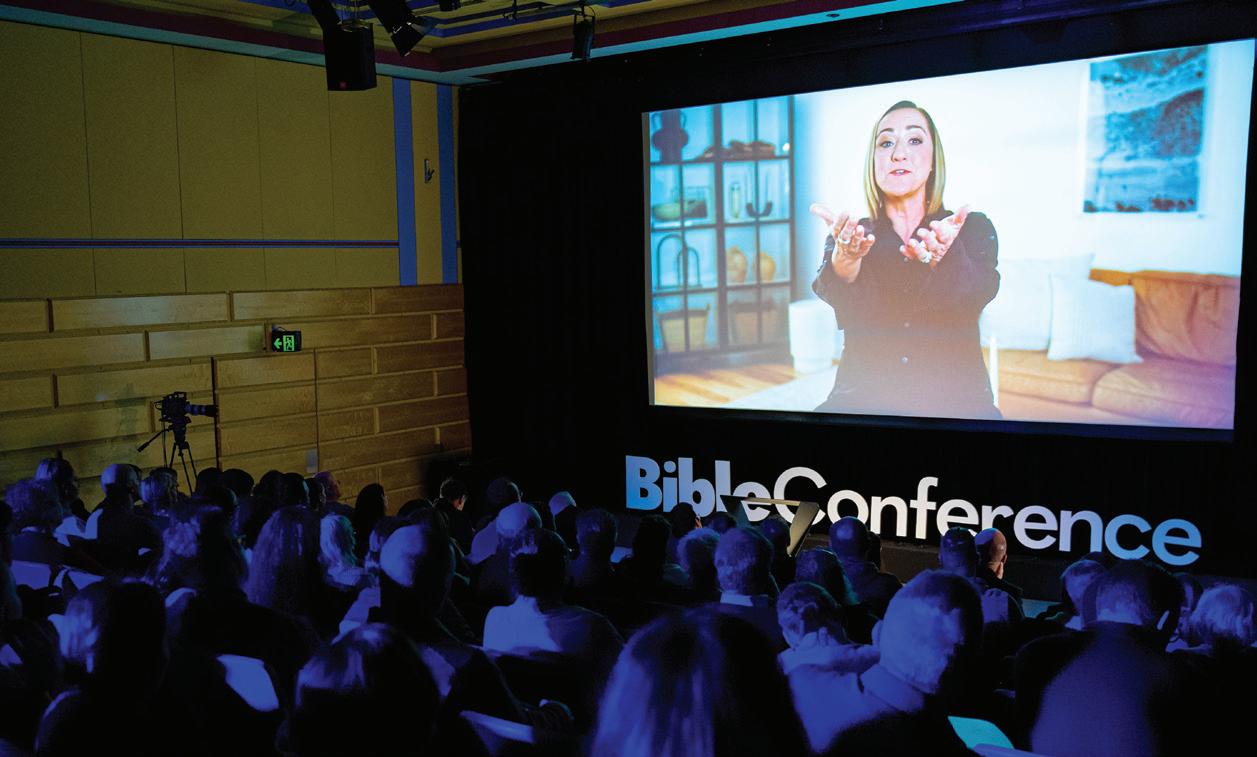
“Does the Bible actually speak to our world and its relationship to technology?” US speaker, author and theologian Andy Crouch asked at Bible Society Australia’s recent Bible Conference.
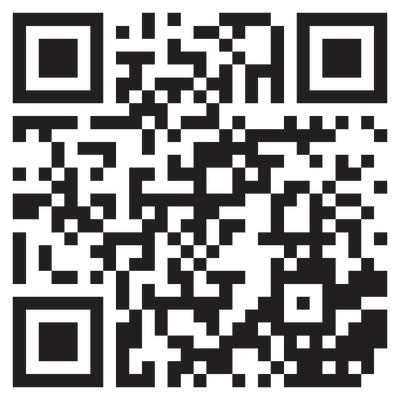
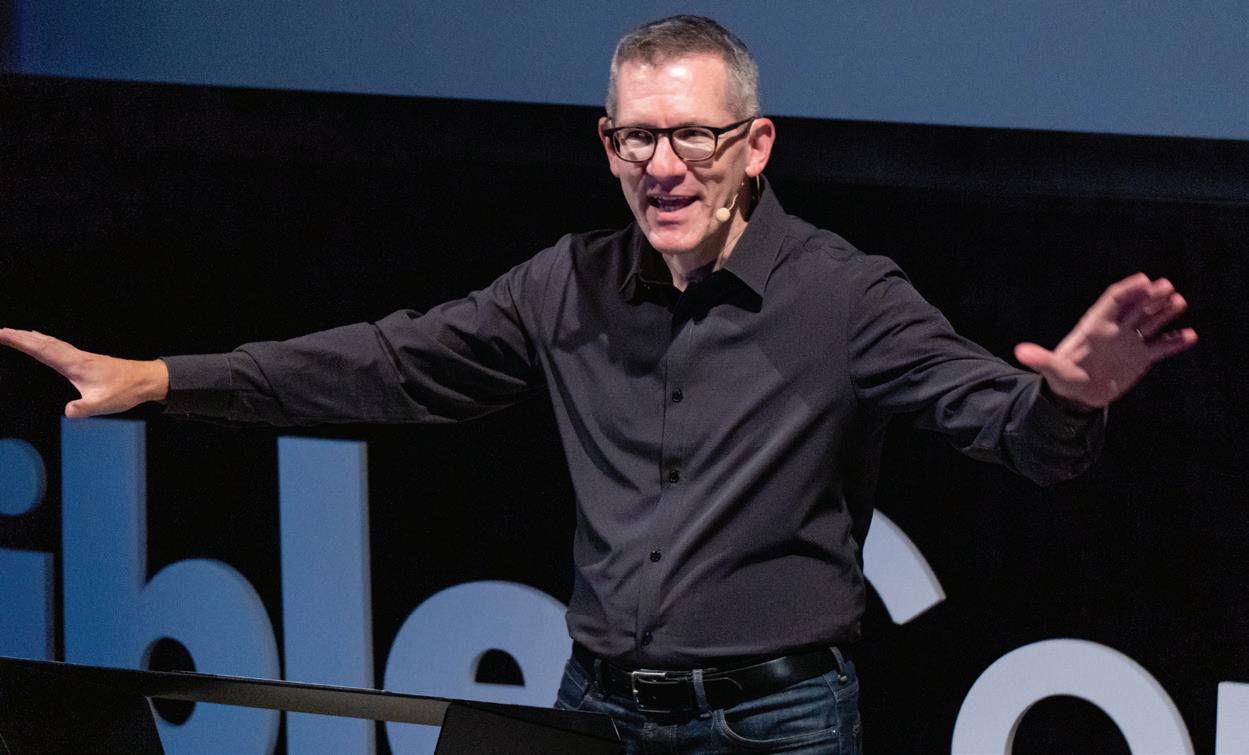

“Can the Bible give you any guidance at all for TikTok?” he quipped.
Perhaps surprisingly, his answer is yes. Our relationship with technology is in fact an age-old story, Crouch argued. Humans use our God-given creativity – in this instance to create technology – but instead of using it to bring glory to our Creator, driven by fear and ambition, we allow it to become an idol.
In order to see technology for what it is, we need to go back to Genesis 11, said Crouch. Here, shortly after creation, it is already clear that humans are failing to bear God’s image properly in the world.
The people of the earth gather on a plain. They possess new technology: brick and tar, instead of stone and mortar. “Come, let us build ourselves a city, with a tower that reaches to the heavens, so that we may make a name for ourselves,” they say, brimming with ambition. “Otherwise, we will be scattered over the face of the whole earth,” they say, full of fear. The story of the Tower of Babel does not end well.
Much later, another empire arises, called Babylon. Much later still, a third empire called Rome. Each time, ambition and fear are written all through the story. Each time, the goal is world domination.
Crouch thinks we live in an empire like these: “I really think that the empire we live in is the empire of technology. That is the dominating force of
our world.” After all, if the leaders of nations and corporations abandoned the pursuit of material prosperity, would they not lose their power in an instant?
While this situation may sound hopeless, Crouch said, “This should be unbelievably encouraging to us. Welcome to the most formative times in the story of God and his people. The Bible is written under the thumb of these two empires – Babylon and Rome. Now that you are in exile – in Babylon – if you can learn to sing the Lord’s song, you will have redemptive effect on the scale of empire, but without the empire’s techniques.”
He illustrated this point by referring to Genesis 12. While Genesis 11 is a story of empire in all its ambition and fear, in Genesis 12 the story of God’s redemptive family begins.
Crouch noted that God’s vehicle of redemption is a family – a messy family too. But almost the entire Bible is devoted to showing how God works his redemption and salvation through this family.
So, how can we hope to stand in the midst of the empire of technology, when great powers want to control us? “There’s another story that we’ve got to get into our bones and start living out in the midst of this empire of technology, which is the redemptive family,” said Crouch.
What is God’s tool for us against the methods of empire? His great subversive way of living?
Sabbath. While technology wants to be always on, “redemption has a beautiful pattern of six days of work and one day of rest.
“It may sound ridiculously simple,” Crouch acknowledged.
Generally, people ask him for rules like, “What age should my kid get an iPhone?” To this, Crouch laughingly responded, “I was able to finally have a reasonably healthy relationship with this thing at
about age 51. So I recommend 51.”
But Crouch thinks the Christian’s ridiculously simple (but difficult) solution is Sabbath. “The most important thing you can do for your family is to have one hour a day, one day a week and at least one week a year where you turn the devices off.”
For Crouch, this means dinner, Sundays and part of August. At the least, this will tell you whether technology is an idol.

When we return to our tech, we can ask, “Will I feel more humble and grateful or more ambitious and fearful when I’m done?” These are good gifts from God, just like bricks and tar. Let’s use them not against him, but to reflect his image in the world, with humility and delight at the glory of his creation.
Andy Crouch is Partner for Theology and Culture at Praxis, a redemptive entrepreneurship organisation. He has tackled the impact of technology in several books, including The Life We’re Looking For: Reclaiming Relationship in a Technological World (2022), My Tech-Wise Life: Growing Up and Making Choices in a World of Devices (2020) and The Tech-Wise Family (2017) –all available at Koorong.
Crouch also recently gave the Centre for Public Christianity’s annual Richard Johnson Lecture for 2022. These annual lectures date back to 2014 and have covered subjects like science and religion, religious freedom, public faith and “Is Christianity Bad News for Women?” You can find recordings of Andy’s lecture, as well as these others, on podcasting platforms like Spotify and Apple Podcasts or at publicchristianity.org/richard-johnson-lecture/ archive/
At Mary Andrews College we believe studying God s word happens best in community Whether you join us in person or online MAC's hybrid classes give you the opportunity to grow in your knowledge of God's word and develop practical ministry skills in community with others
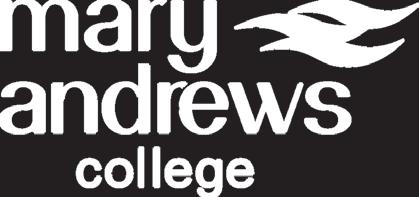
22
BIBLE CONFERENCE WRAP-UP
we need to
Bible Society Intern Eliot Kern reports on Andy Crouch’s Bible Conference message.
What does the Bible teach us about technology?
www.mac.edu.au APPLY NOW to join us for study in 2023
SOCIETY AUSTRALIA

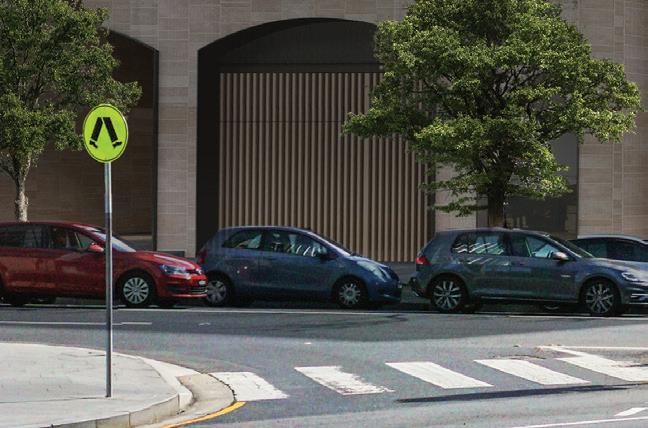




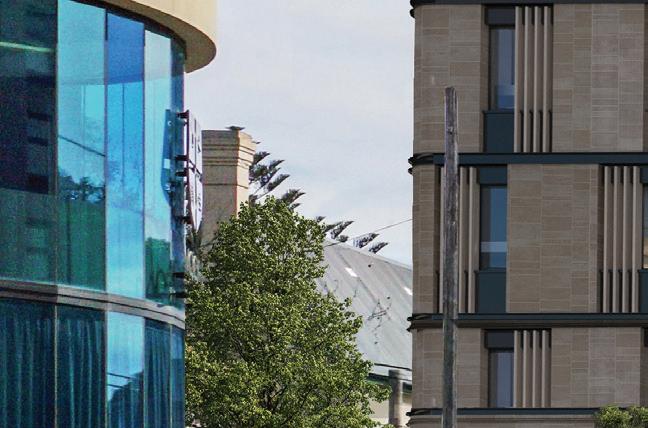
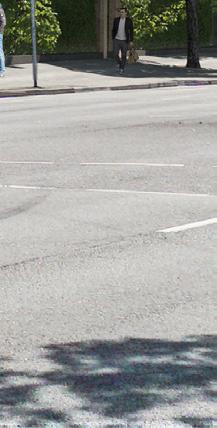

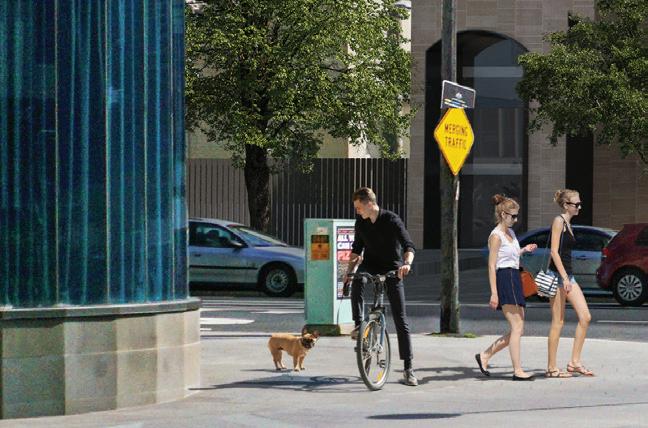



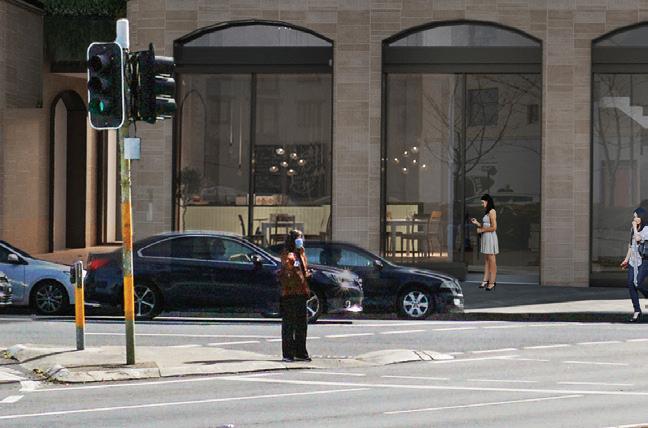

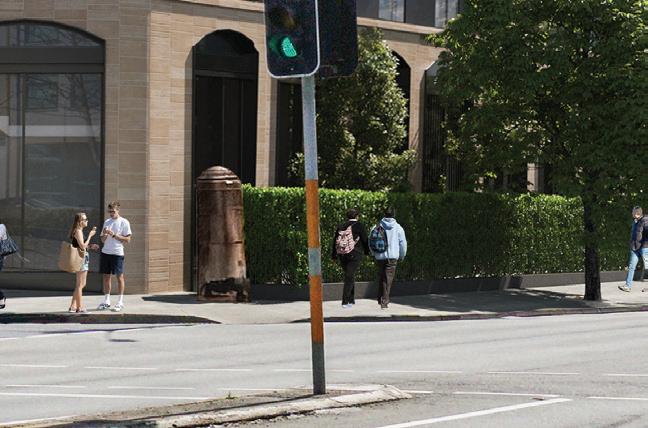

The life-giving gift of literacy




“How, then, can they call on the one they have not believed in? And how can they believe in the one of whom they have not heard? And how can they hear without someone preaching to them? And how can anyone preach unless they are sent? As it is written: ‘How beautiful are the feet of those who bring good news!’” (Romans 10:14-15)
Can you imagine a life without literacy? As literate people, there are so many things we can take for granted: being able to use public transport, reading signs to know where we are and to safely get to where we are going. Reading a script for medication for yourself or your loved one. Reading the labels on tools required for your work. Signing your name on legal documents. Writing to a local member of parliament on an issue you feel passionate about. Being able to read, study and share God’s word at church and with believers. All these examples are real – testimonies of people who have participated in Bible-based literacy projects run by Bible Societies around the world. Their testimonies give a startling and sobering insight into just how important the gift of literacy is to those who are not yet literate.
Julian Sundersingh is the Global Literacy Coordinator for the United Bible Societies (UBS). During a recent visit to Australia, Julian spoke about the importance of literacy work and why it is crucially important for Bible Societies.
them to make well-informed decisions about their lives. It opens up opportunities for employment, further education and helps people get themselves out of poverty. In short, people who are literate have far better prospects than those who cannot read.”
Bible Societies worldwide are wholly committed to literacy work, firmly convinced that reaching the 750 million non-literate adults (as well as children) around the world with the gift of literacy is central to God’s plan and purpose.
Dr Kimmo Kosonen is the Head of Literacy and Education for the United Bible Societies. Born in Europe, he has lived for more than two decades in Southeast Asia, which he loves. Kimmo is clearly passionate about literacy and speaks with great enthusiasm about the work he is involved in. He has been an international consultant in multilingual education and literacy for many years, training Bible translators and literacy workers for Southeast Asia, as well as providing consultancy services, technical assistance on literacy and education.
New to UBS in January 2022, Kimmo brought his wide-ranging experience and passion for literacy work and education with him. “I’ve done quite a lot of advocacy in this region, in Southeast Asia, on why using a person’s first language, home language is important in literacy and education,” he says.
Kimmo believes that literacy work is uniquely suited to Christian organisations such as Bible Society. “In my mind,” he says, “it makes so much sense. Literacy is something that Christians should offer to other people, because it’s central to our faith, and it’s central to making their lives better.”
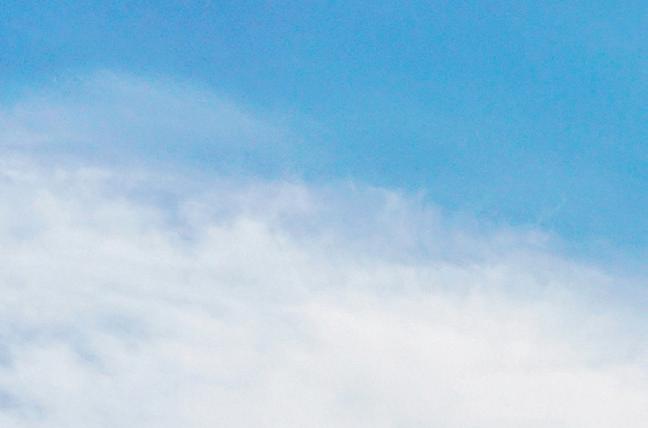
Speaking mostly about the Southeast Asian region, he says, “Education is generally provided in the dominant language of a nation, and those ones who don’t do well in education in these countries are often from those non-dominant language backgrounds – often from rural, more remote areas where the schools aren’t that functional or not effective anyway. Therefore, there are some children who never learn to read and write well in those remote schools. Especially if it’s in a language they don’t fully understand and there are other challenges like health or poverty. And so, not everyone completes their education and they never become literate in a language.”
Kimmo explains that in many countries governments are not really concerned about the smaller communities, focusing instead on very strong schools in cities and often forgetting the more remote areas and the non-dominant language communities. Yet, Kimmo insists, “Someone needs to serve those people. And this is where Bible Societies, churches and other aid organisations can play a major role in filling the gap of education, providing basic literacy when no one else is doing it.”



Kimmo concludes, “We in wealthy countries, wealthy churches, all Christians that are brothers and sisters – we have something that they don’t have. Literacy. So it’s natural that we share from what we have.”

Julian says. “Being able to read and write gives people access to essential information, empowering
Many of the literacy projects supported by Bible Society Australia are in non-dominant languages and in remote, rural areas. Kimmo has done extensive research and work in both of these fields.
You can support Bible Society literacy programs around the world through a donation today at biblesociety.org.au/read

OF LITERACY
24 25
Leading Christian Online Employment Service Connecting job seekers and employers who share like-minded values Find or Advertise your job at www.christianjobs.com.au Scan QR code or connect with us on social media Search Jobs or Advertise MORE INFO: moore.edu.au/jch Will you partner with us as we redevelop John Chapman House, to help Moore College train more gospel workers for the harvest?
Australia’s
Donate today at BIBLESOCIETY.ORG.AU/READ
THE GIFT
Your tax deductible donation today will help fund Bible-based literacy programs around the world and Open The Bible to all
Karen Mudge
GIVE
“We believe that literacy is about dignity, independence and wholeness,”
Karen Mudge is Copywriter for Bible Society Australia.
BIBLE
CHRISTMAS CELEBRATIONS

Summer reading guide
Foster Chief Retail Officer of Koorong
Q: What book are planning to read this summer?

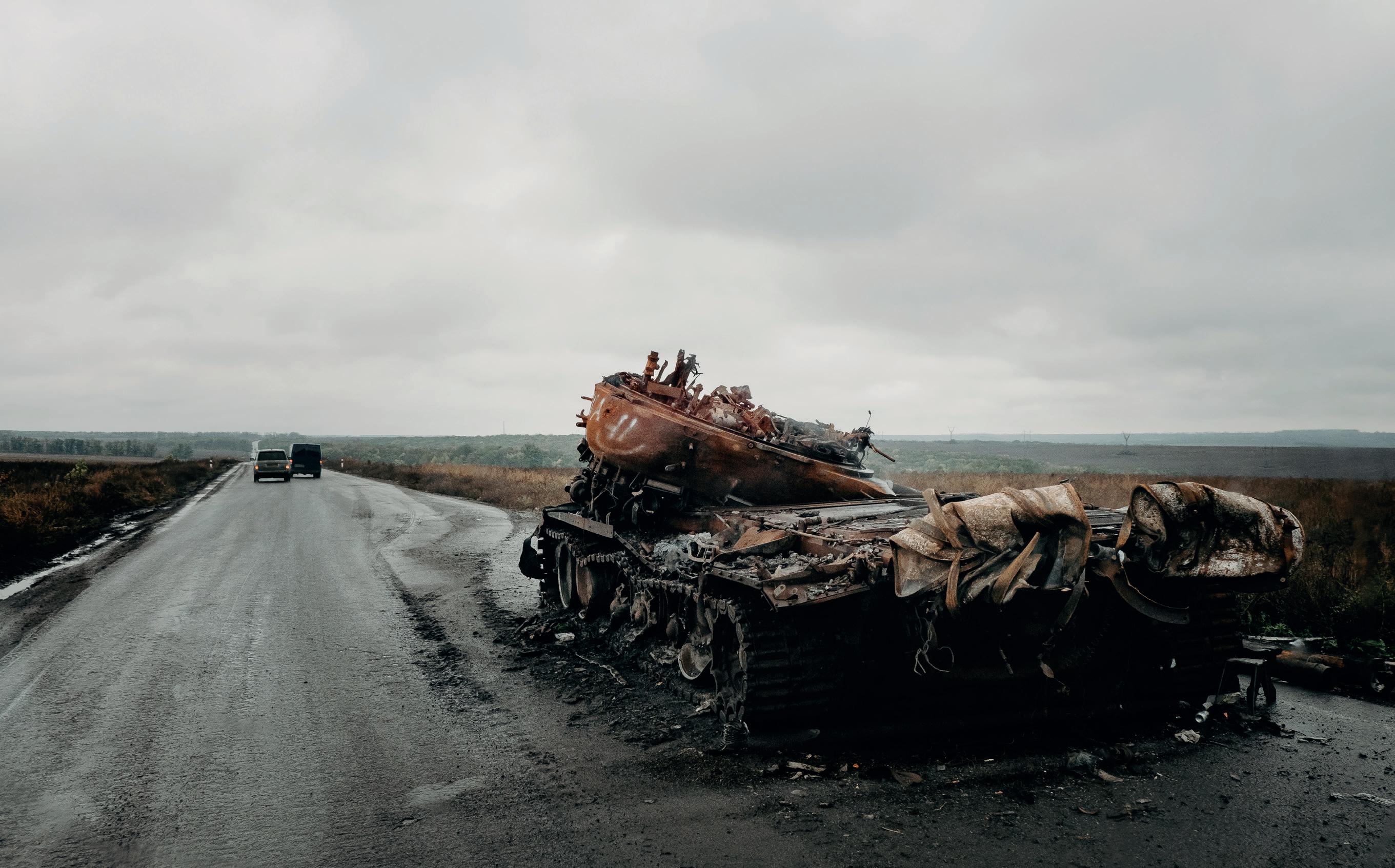
A: Strong and Weak: Embracing a Life of Love, Risk and True Flourishing by Andy Crouch.

It’s out later this month. After reading about the content, I was drawn to this book with the statement Andy makes that flourishing people are strong and weak. He says two common temptations lure us away from abundant living: withdrawing into safety and grasping for power. True flourishing, he says, travels down an unexpected path – being both strong and weak. We see this unlikely mixture in the best leaders – people who use their authority for the benefit of others while also showing extraordinary willingness to face and embrace suffering. He holds up Christ as the perfect example of this as Christ is really in every sphere of how we should live our lives. I like Andy’s style of writing and was very impressed with his speaking at the recent Bible Conference held by Bible Society.
Q: What book have you already read that you would recommend?


A: Being the Bad Guys: How to Live For Jesus in a World That Says You Shouldn’t by Stephen McAlpine.
I really enjoyed this book as it really helps Christians better understand the world’s current view of Christianity and gives some really practical and helpful ways of talking to people who have opposing views. We are seeing more frequently in recent times how Christians’ beliefs are perceived in this cancel-culture world and Stephen’s book is so good to reflect upon how we should better approach others in showing them the truth in a more thoughtful way. I strongly endorse it and it did win the 2021 Australian Christian Book of the Year.
Susannah McFarlane Head of Publishing, Bible Society Australia
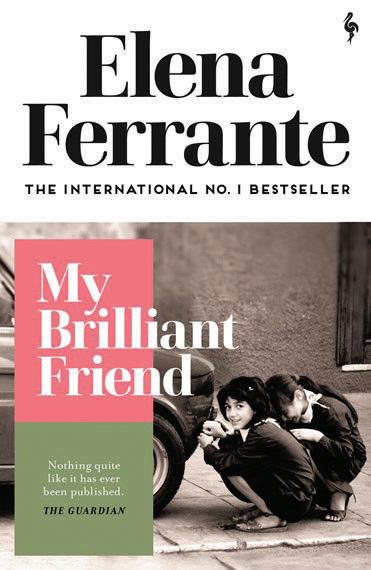
Q: What book are planning to read this summer?
A: This summer I am, once again, going to start on Elena Ferrante’s Neapolitan Quartet
A global bestseller and hailed by many as a modern masterpiece, capturing both the sweeping historical arc of the twentieth century and the personal story of a lifelong friendship. I seem to be the only person I know who hasn’t read it and loved it. There are so many things I should love about it: beautiful writing, deeply-drawn characters, female friendship, Italy … I have tried a few times with, obviously, the first book, My Brilliant Friend inspired by my own brilliant friends’ recommendations, but have never been able to get into it. I am not sure why, but am pretty sure that it’s me and not the book! I recently bought the first three in fresh new paperback editions (I am a total sucker for beautiful covers) as part of a “buy two, get one free” offer as a statement of intent. It is said that books have their certain season in your life and one that fails to ignite one time might just become your new favourite book another – I’m hoping that’s the case this summer!

Q: What book have you already read that you would recommend?
A: Brennan Manning’s The Furious Longing of God, would be my pick not just for this summer but every summer reading. This small but perfectly formed, beautifully written book is, “a love story for the broken hearted,” a cold-religion-free reminder of the ridiculous love of God. It’s an annual downtime, re-fuel read for me – to remember whose I am.

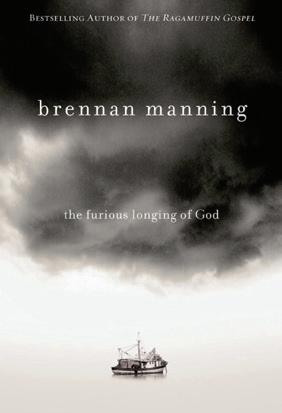 Grant Thomson
Grant Thomson

 CEO of Bible Society Australia
CEO of Bible Society Australia
Q: What book are planning to read this summer?
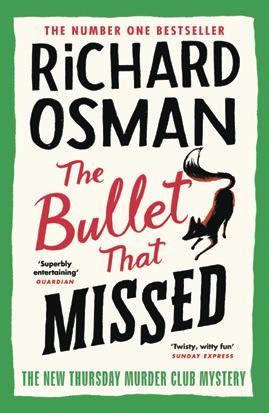
A: Having read a lot of books over the years, I’m trying to focus on more quality, less quantity. So over the summer I’ll read a bunch of C.S. Lewis books I’ve recently purchased. I’ll probably re-read Mere Christianity and go from there.
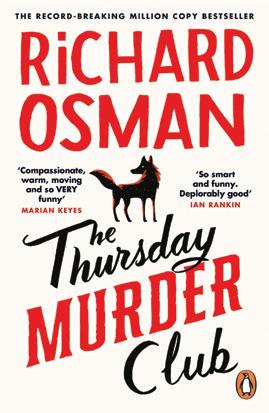
Q: What book have you already read that you would recommend?
A: I’m finishing off Cosmic Chemistry by John Lennox. Mind-blowing, especially the part about quantum physics. The universe is amazingly complex!
Q: What book are planning to read this summer?
A: It’s easy to get over-ambitious about your summer reading. I always imagine stretches of uninterrupted, golden hours curled up with a good book – the reality tends to fly by far more quickly. I could resolve to finally tackle Dune or Proust, but when it comes to it I really want something easy, cosy, and an unalloyed pleasure to read. I adored the first two Thursday Murder Club books, by TV personality and now novelist Richard Osman, about four friends in an English retirement village who find themselves solving crimes. So I was thrilled to see that the third book, The Bullet That Missed is out in time to be saved up for the Christmas break. I loved the characters and the way that they leverage the indignities of ageing (in particular other people’s tendency to underestimate or dismiss them) to the advantage of their sleuthing, and I’m eagerly anticipating this new romp with Elizabeth, Joyce, Ibrahim and Ron.
Q: What book have you already read that you would recommend?
A: If you still have the entire series ahead of you – starting with The Thursday Murder Club – I’m almost jealous. These lazy days of summer are a perfect time to get stuck in!
27 26
Natasha Moore
Senior Research Fellow for the Centre for Public Christianity
David
ARE THE LAST THING ON THEIR MINDS… Donate this CHRISTMAS HELP MISSION WITHOUT BORDERS DELIVER EMERGENCY FOOD AND HYGIENE PARCELS TO THOSE AFFECTED BY THE WAR IN UKRAINE THIS CHRISTMAS HTTPS://WWW.MWB.ORG.AU/AT-WAR-AT-CHRISTMAS DONATE TODAY Who should attend the “Taster” class? Anyone who: Wants to see if vision colleges is right for them Is curious about the bible Anyone with a heart to learn the word Wants to be equipped for ministry For More Info: Try the No-obligation ‘Taster’ Program Today ‘Taste and see that the LORD is good: blessed is the man that trusts in him.’ Psalm 34:8 visioncolleges.edu.au EMAIL principal@visioncolleges.edu.au CALL +61 2 96032077
Responding to God’s call in a time of famine
 Melody Murton
Melody Murton
In southern Mozambique, where poverty rates are among the world’s highest, there are shoots of hope. Hundreds of families are enjoying nourishing meals from their own patch, with enough produce left so that they can also sell some to generate an income. They’re part of a project run by Tearfund’s Christian partner RCHS, which provides farmers with improved seeds and tools, as well as training in a method of farming called conservation agriculture which leads to improved soil and better yields.
Joana, one of the farmers involved in the project, says: “With what I learned, I am now able to buy crockery for my house, my children eat well every day and I do business with the produce from my field of production.”
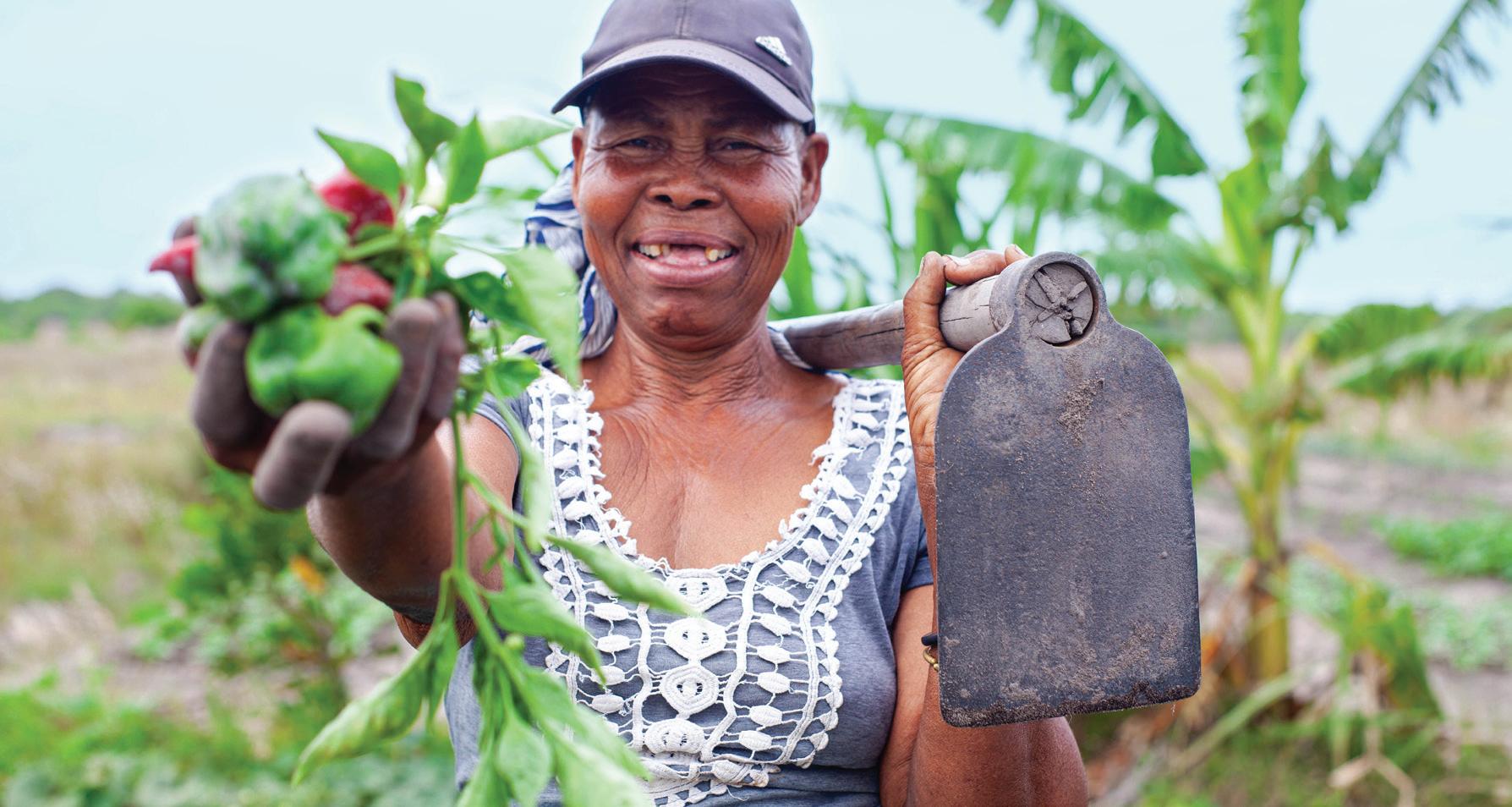

Mozambique is one of the countries that has been hit hardest by the current global hunger crisis. The crisis is the worst the world has seen in more than a century. Fifty million people are on the brink
food security for the long term, through projects like RCHS’s, is having an impact.
For Rachel Hansen, a Tearfund supporter based in south-east Queensland, learning about the sheer scale of the global hunger crisis has been a catalyst for action. She has organised an event called Fashion for Famine, a local clothes swap to raise funds for the work of Tearfund’s partners in food security.
“For me the huge numbers, the urgency that I felt in hearing about the impending crisis, were a trigger,” Rachel says. “It was also the gross
Rachel says that when thinking about something as immense as global hunger, what has helped her is creating the space and time for God to work through her.
“Giving myself time to actually absorb what I was hearing and reading has been key,” she says.
“It’s way too easy to just give something a moment of your time and then move on unchanged in your own feelings and thoughts.
“When I feel overwhelmed with both famine and event organising I remind myself that this is God’s work and I’m just helping. He is far more loving, powerful and awesome than I can ever be and I can trust Him with all things.”
Thanks to supporters like Rachel and the faithful work of Tearfund’s partners like RCHS, change is happening. You can be part of this change too by purchasing from Tearfund’s Useful Gifts Catalogue. Visit www.usefulgifts.org
TEARFUND SPONSORED PAGE
The gift of good food to help fight famine, Tearfund, Mozambique
Useful Gifts usefulgifts.org







































































































































































































































 Grant Thomson
Grant Thomson

 CEO of Bible Society Australia
CEO of Bible Society Australia


 Melody Murton
Melody Murton

